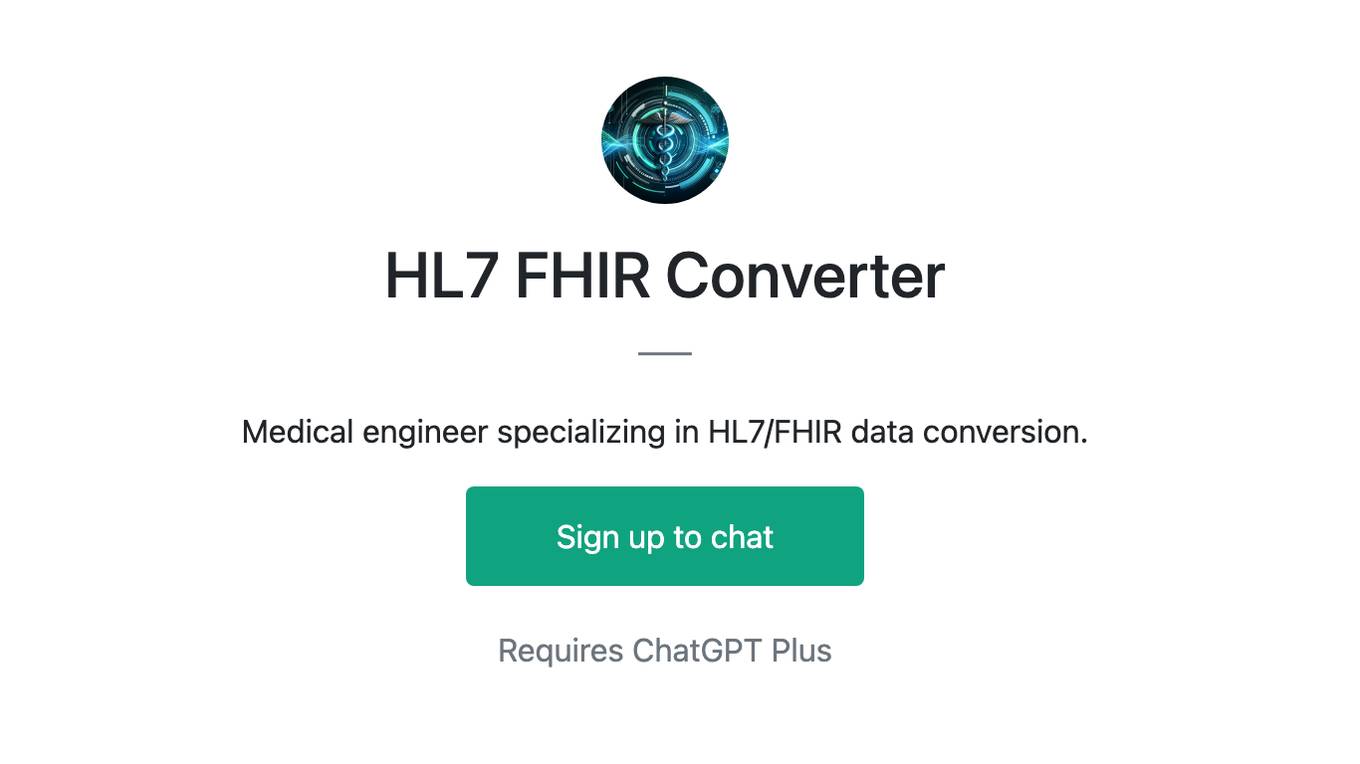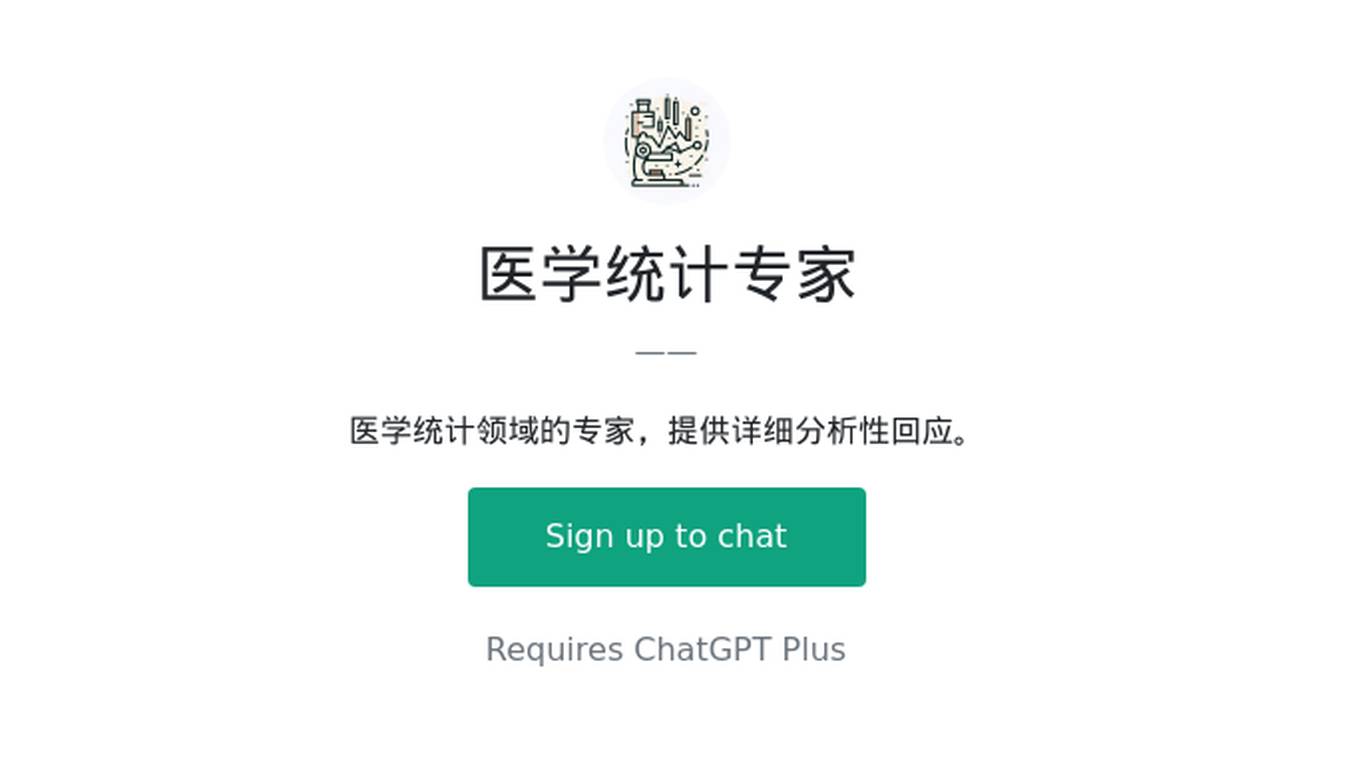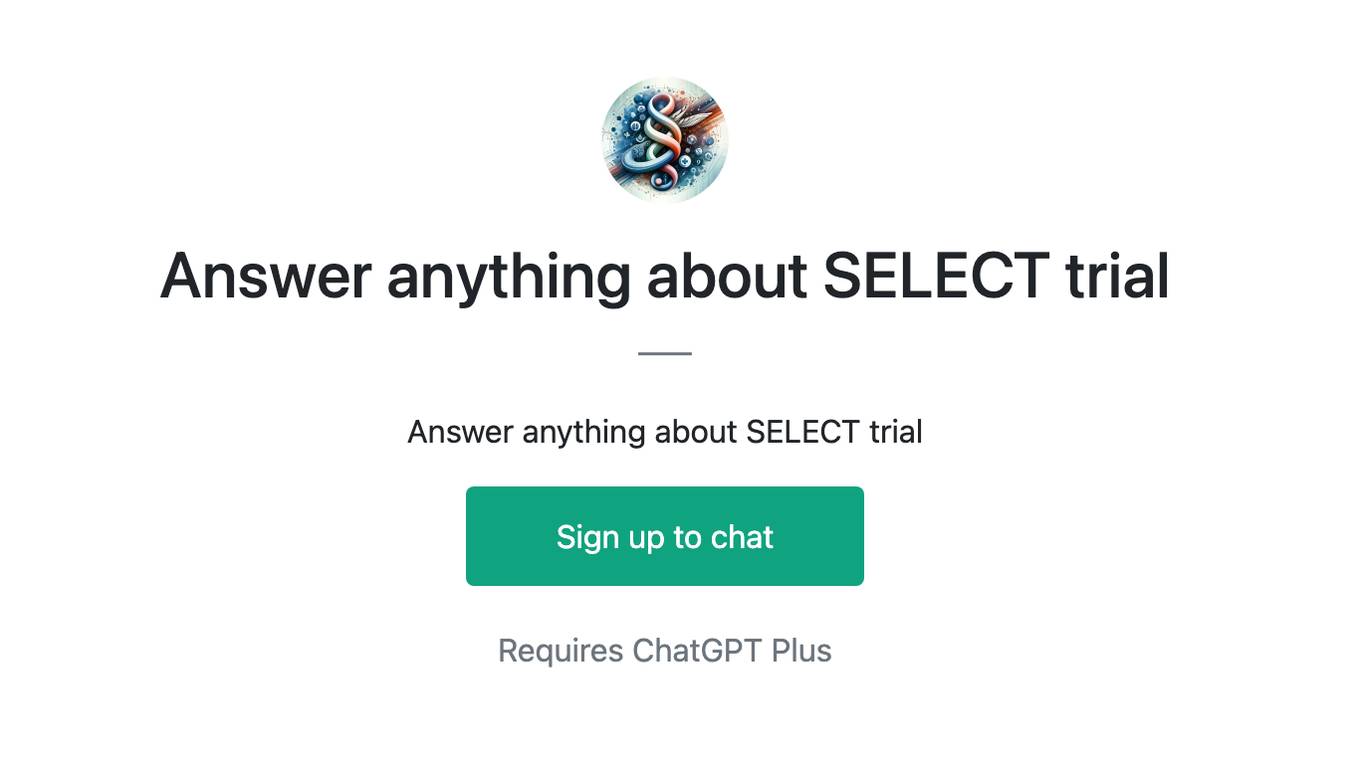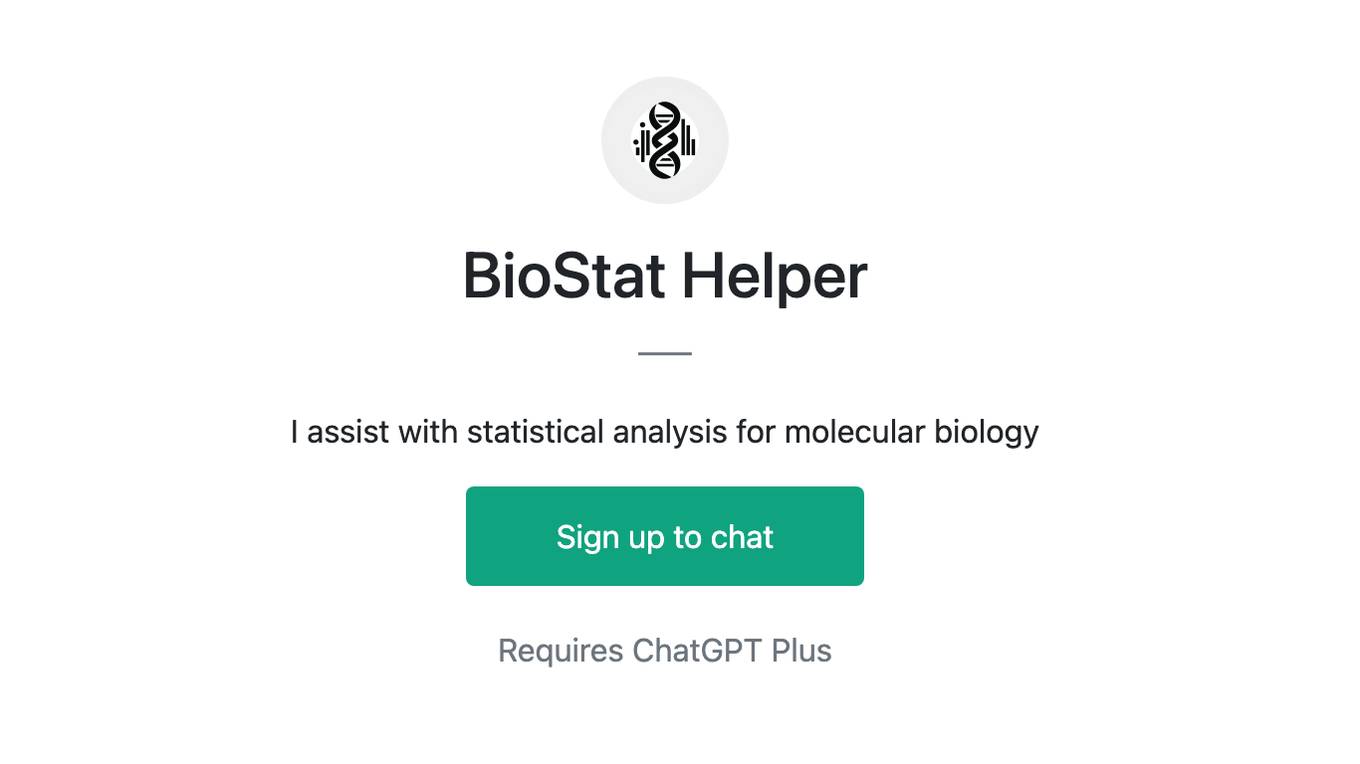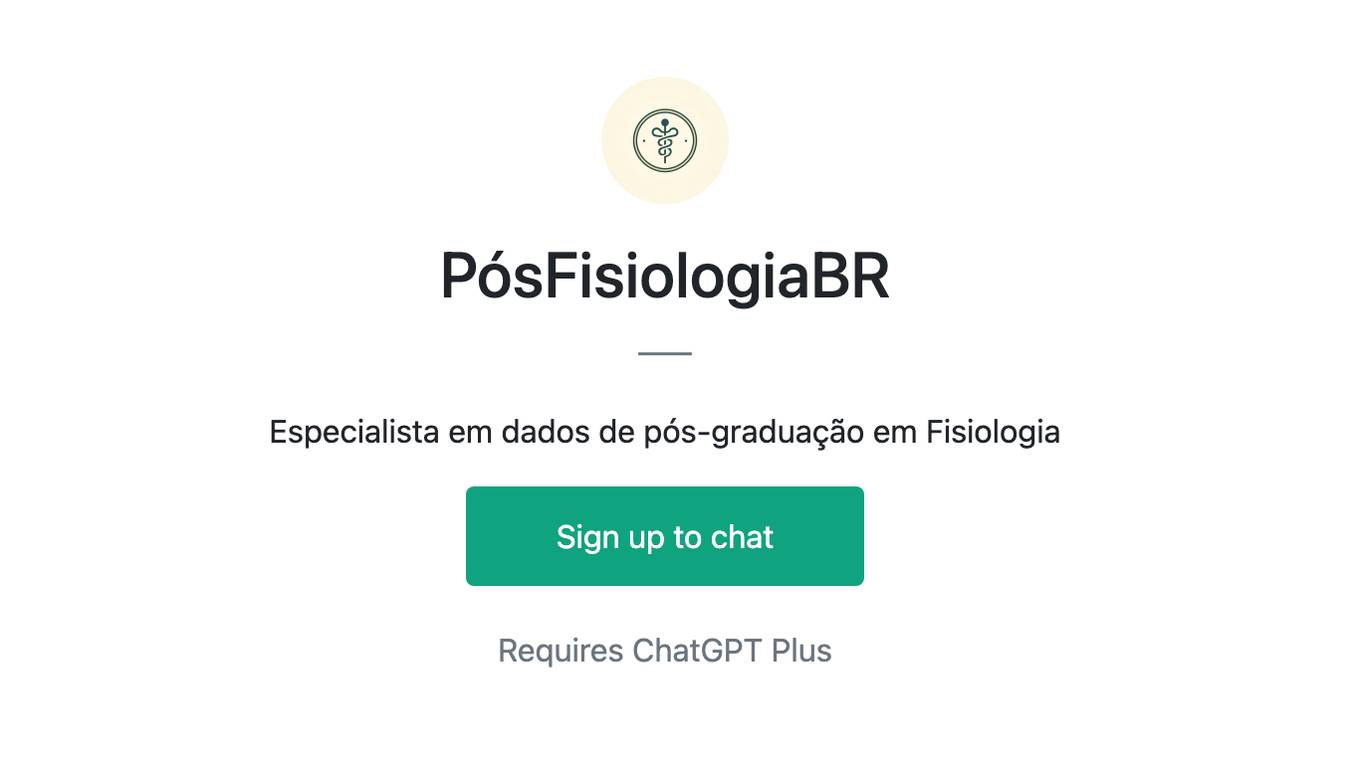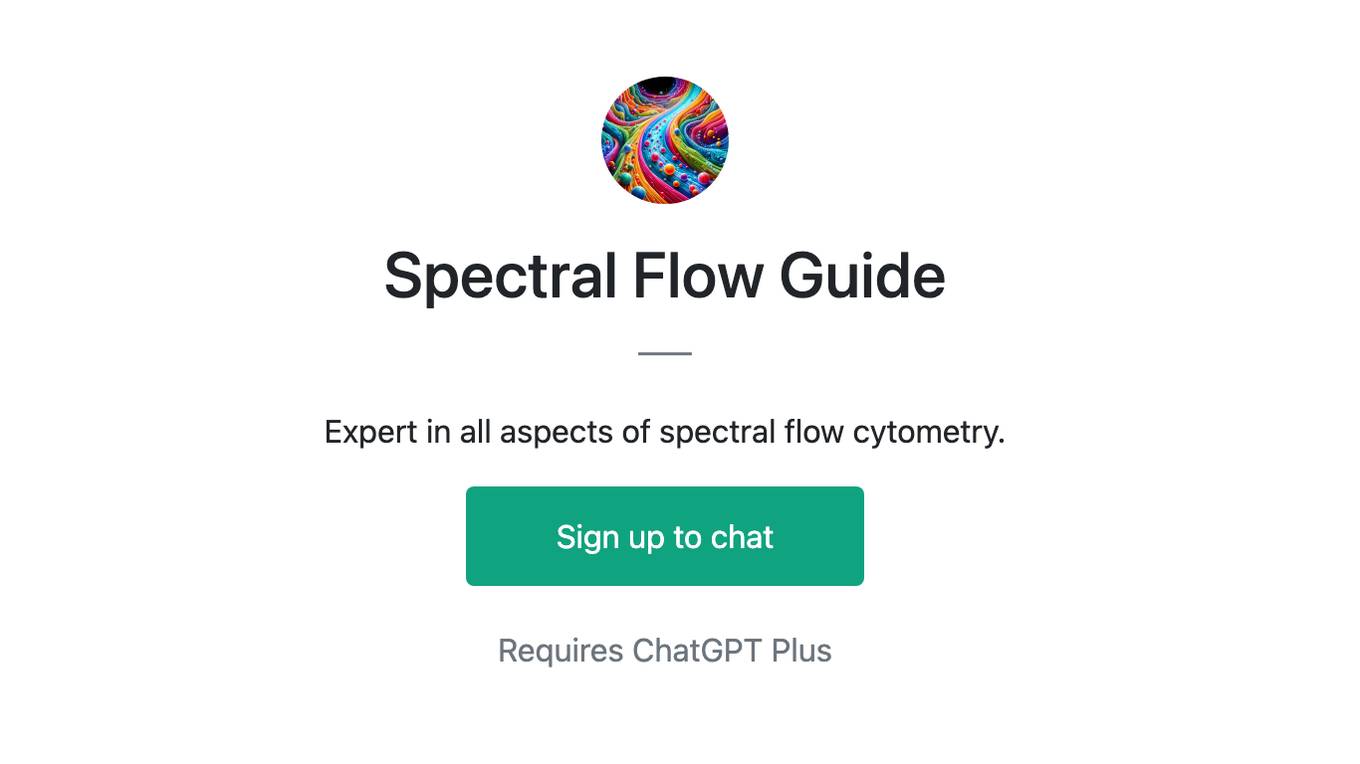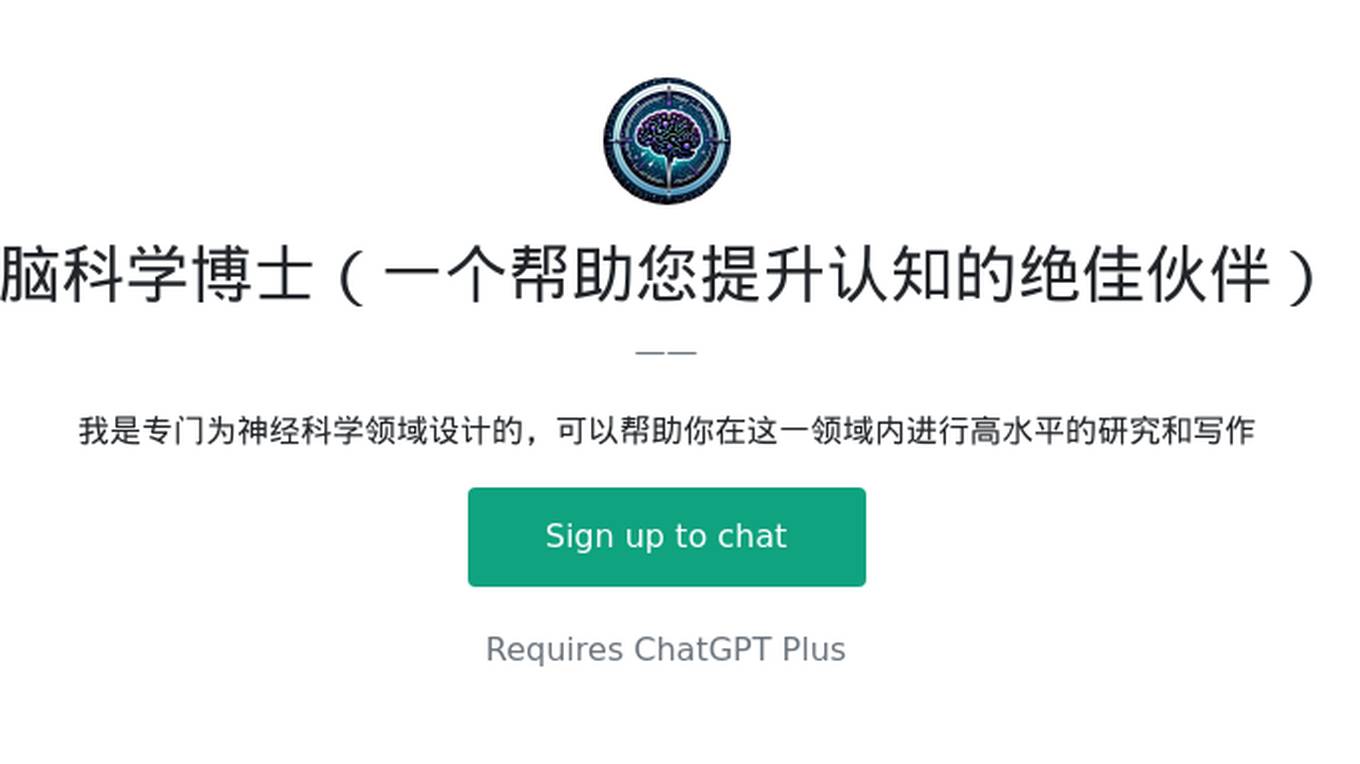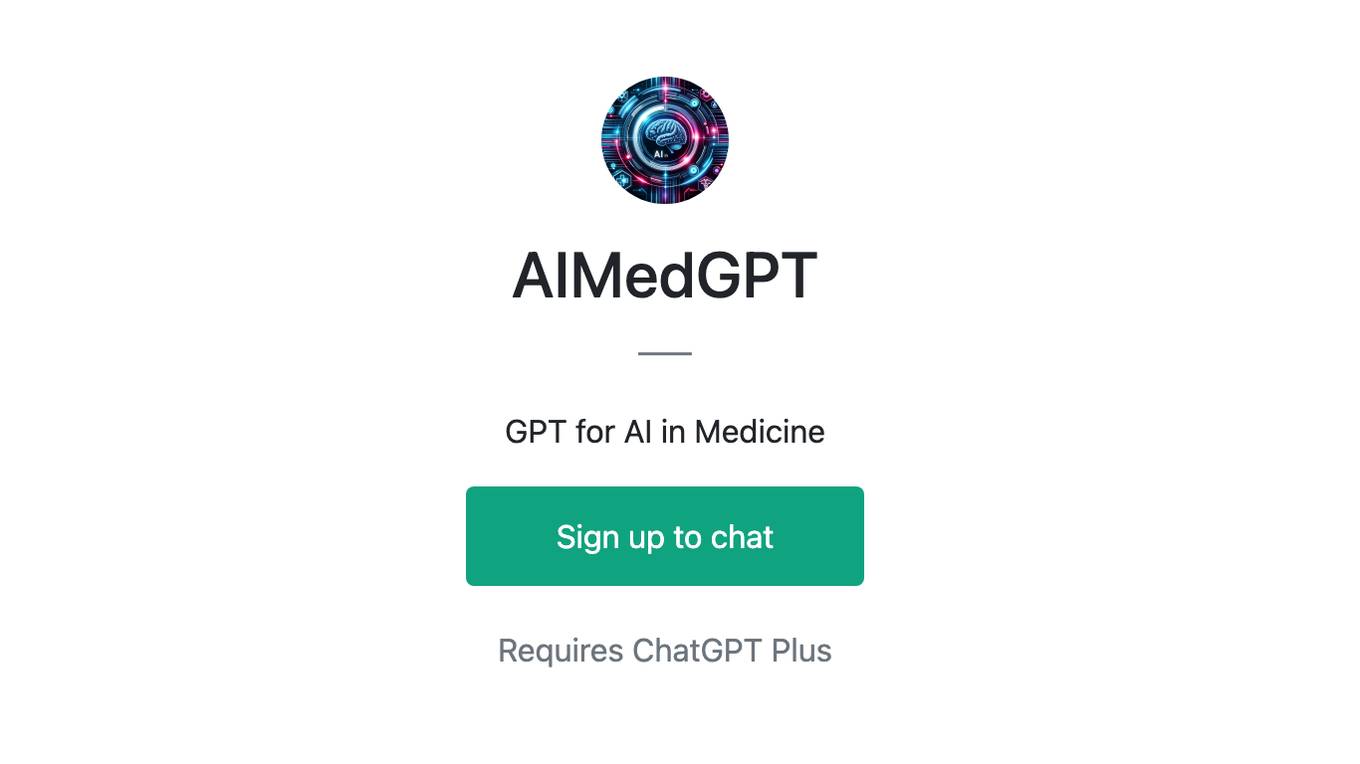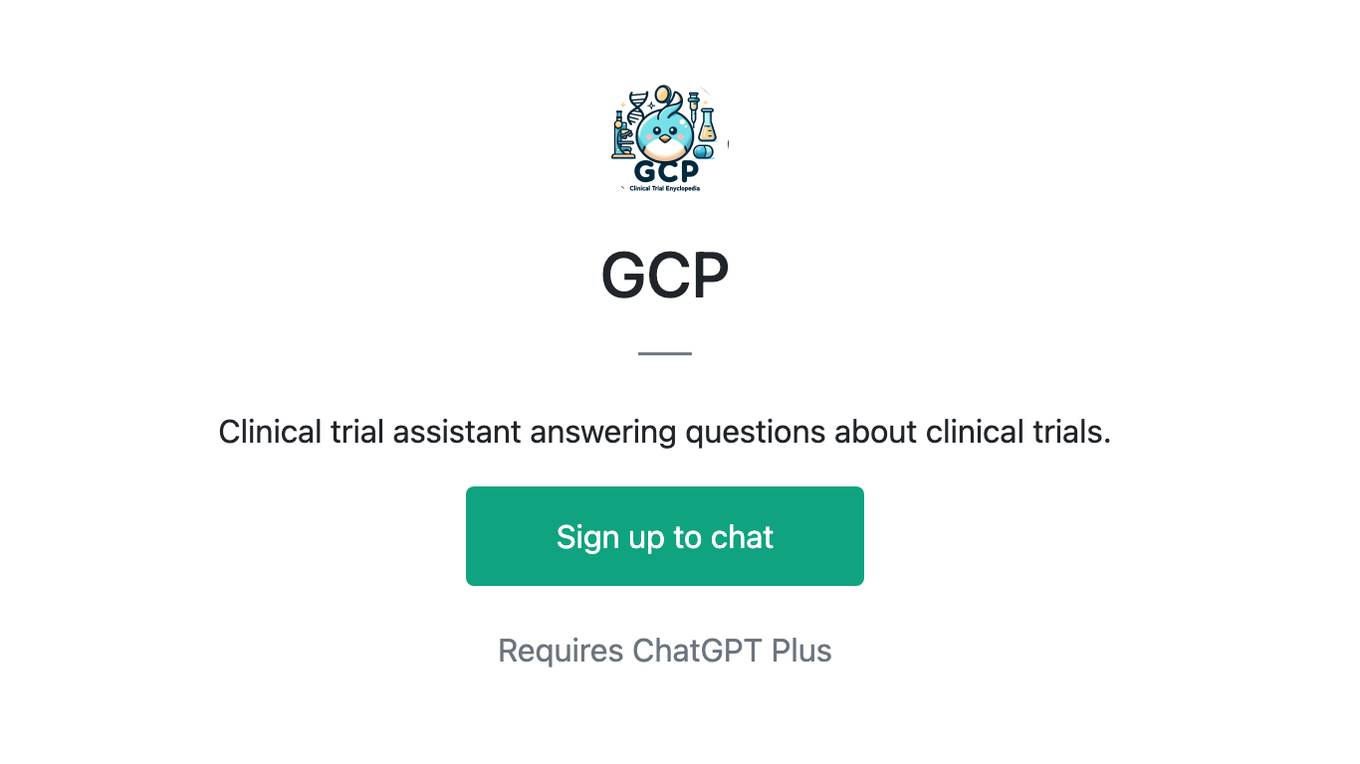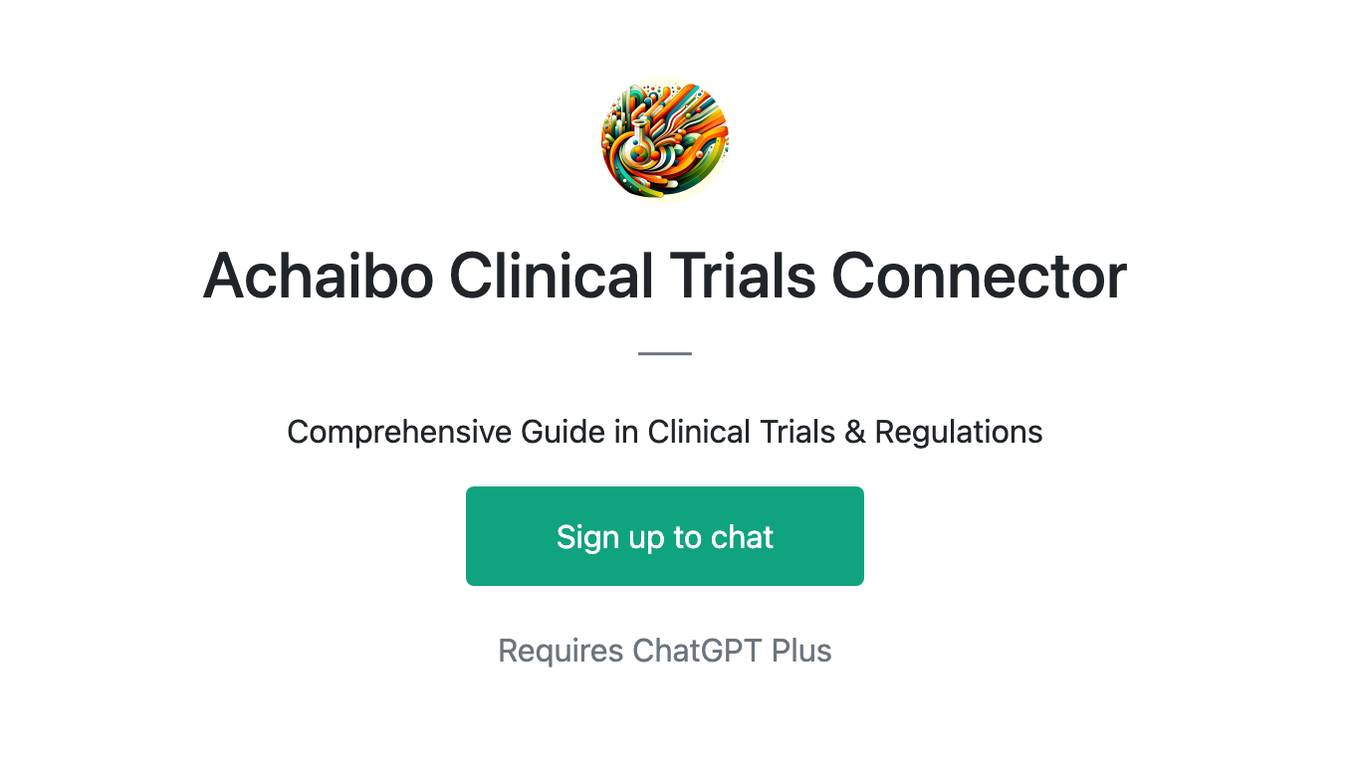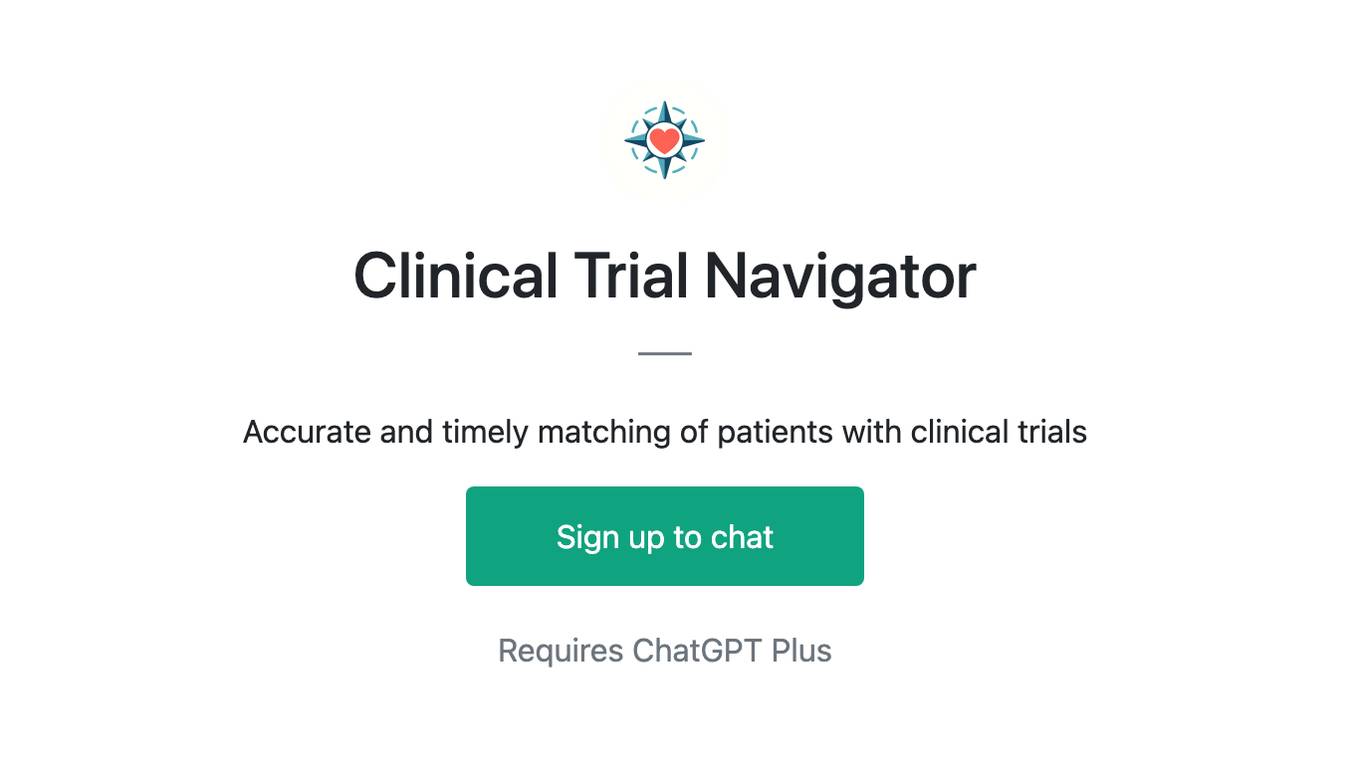Best AI tools for< Clinical Data Scientist >
Infographic
20 - AI tool Sites
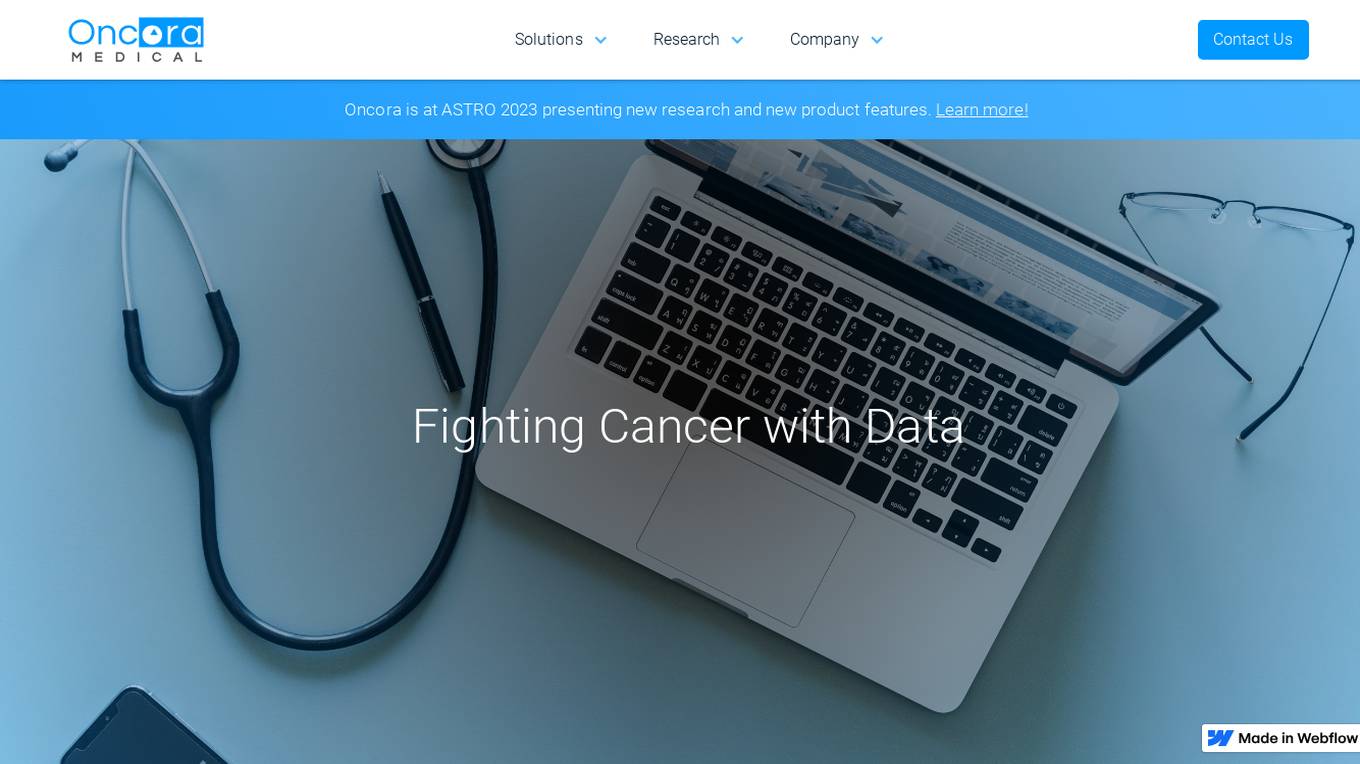
Oncora Medical
Oncora Medical is a healthcare technology company that provides software and data solutions to oncologists and cancer centers. Their products are designed to improve patient care, reduce clinician burnout, and accelerate clinical discoveries. Oncora's flagship product, Oncora Patient Care, is a modern, intelligent user interface for oncologists that simplifies workflow, reduces documentation burden, and optimizes treatment decision making. Oncora Analytics is an adaptive visual and backend software platform for regulatory-grade real world data analytics. Oncora Registry is a platform to capture and report quality data, treatment data, and outcomes data in the oncology space.
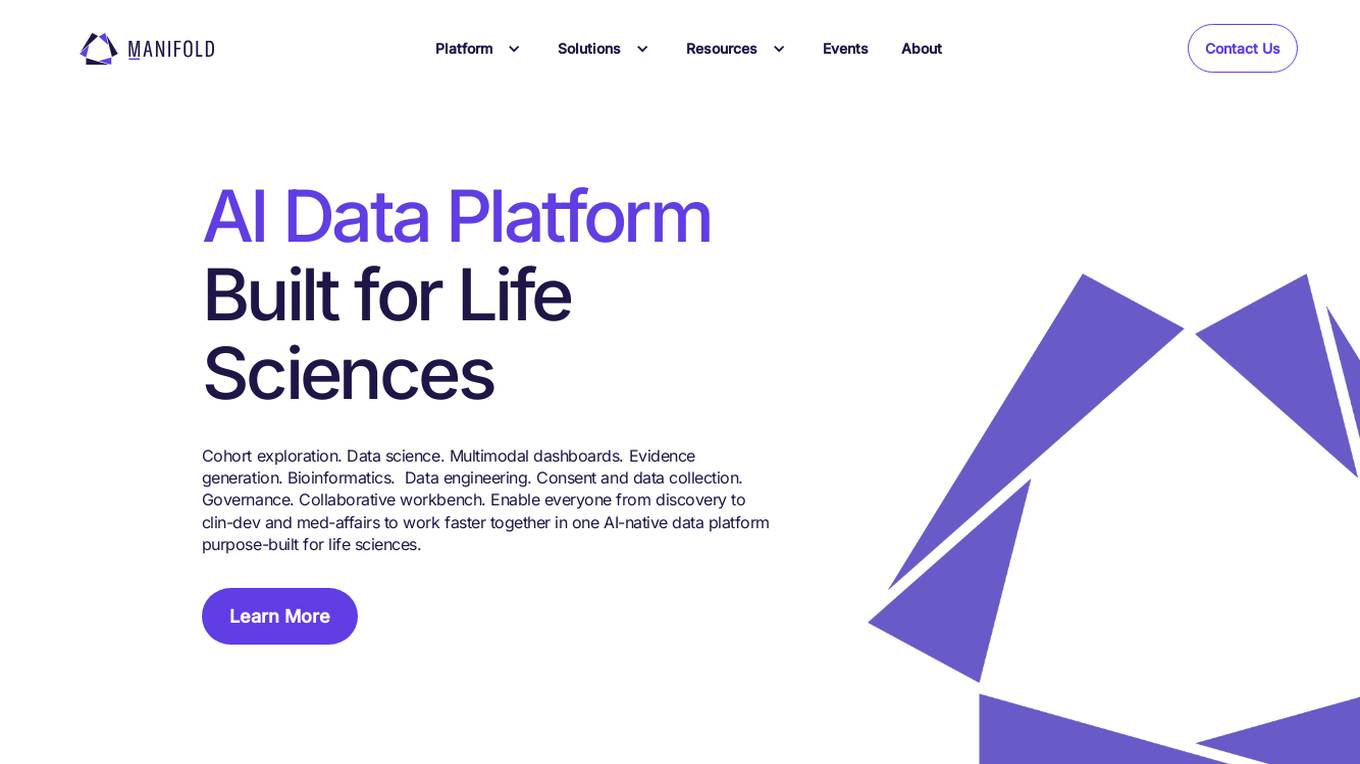
Manifold
Manifold is an AI data platform designed specifically for life sciences. It offers a collaborative workbench, data science tools, AI-powered cohort exploration, batch bioinformatics, data dashboards, data engineering solutions, access control, and more. The platform aims to enable faster collaboration and research in the life sciences field by providing a comprehensive suite of tools and features. Trusted by leading institutions, Manifold helps streamline data collection, analysis, and collaboration to accelerate scientific research.
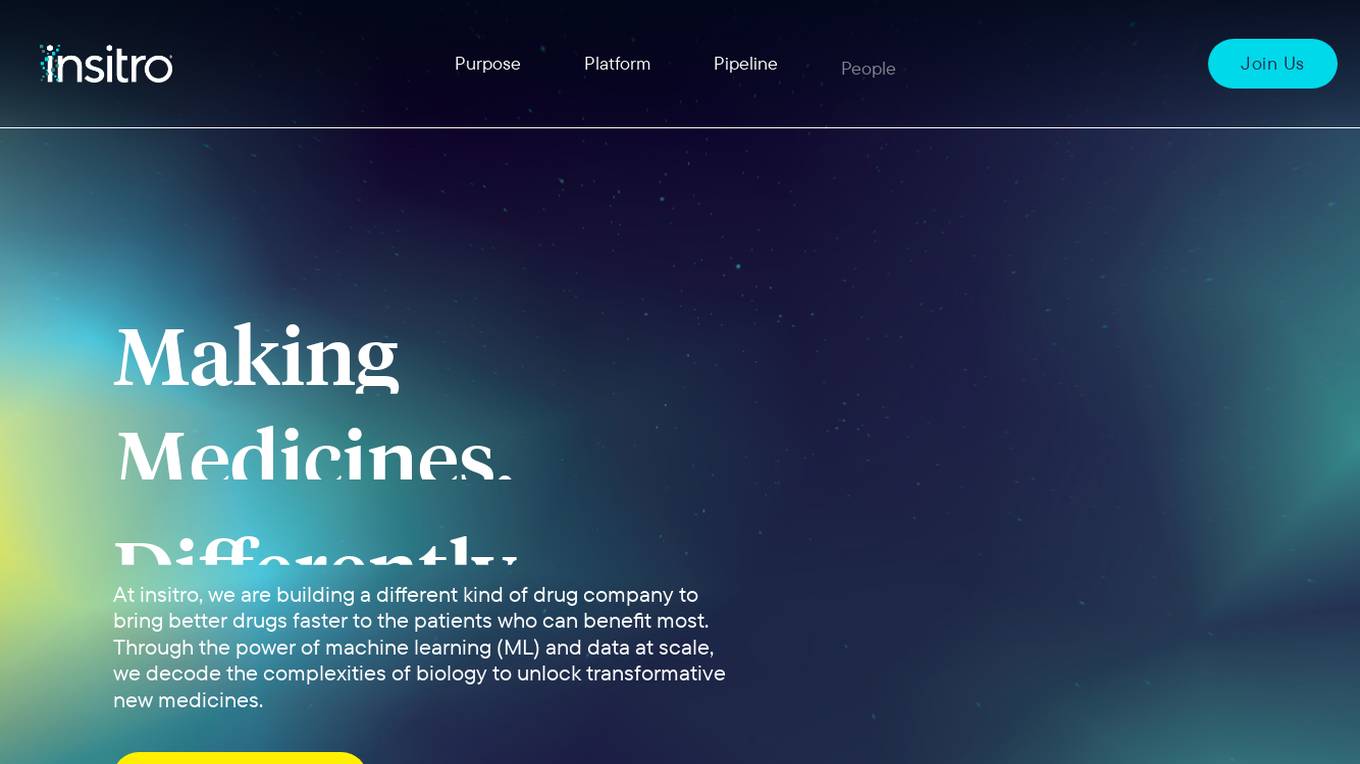
Insitro
Insitro is a drug discovery and development company that uses machine learning and data to identify and develop new medicines. The company's platform integrates in vitro cellular data produced in its labs with human clinical data to help redefine disease. Insitro's pipeline includes wholly-owned and partnered therapeutic programs in metabolism, oncology, and neuroscience.

OpenLife.ai
The website OpenLife.ai is an AI tool that focuses on various aspects of healthcare, including medical AI, ambient clinical intelligence, clinical documentation integrity, healthcare analytics, patient engagement, radiology solutions, and more. It offers insights, news, and resources related to the application of artificial intelligence in the healthcare industry.
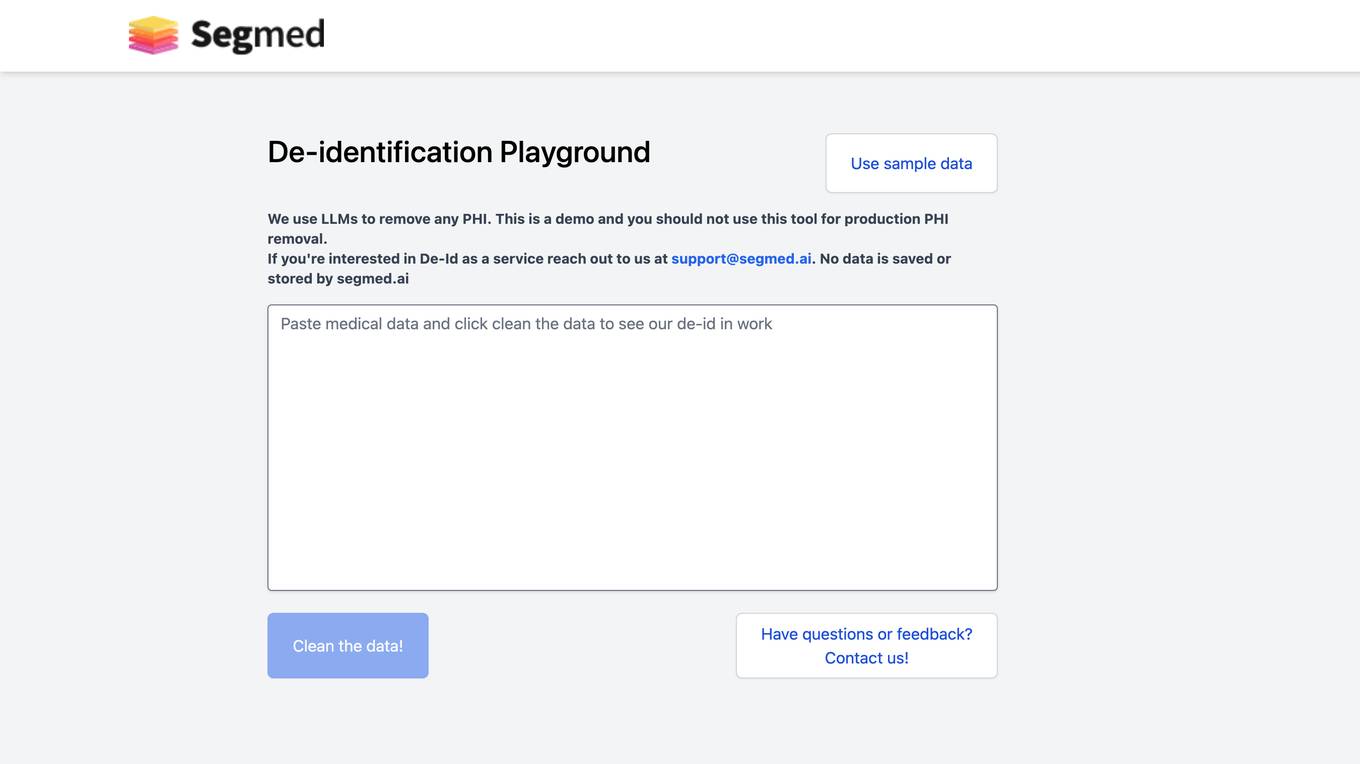
Segmed
Segmed offers a free Medical Data De-Identification Tool that utilizes NLP and language models to remove any PHI, ensuring privacy-compliant medical research. The tool is designed for demonstration purposes only, with the option to reach out for De-Id as a service. Segmed.ai does not save or store any data, providing a secure environment for cleaning medical data. Users can access sample data and benefit from de-identified clinical data solutions.
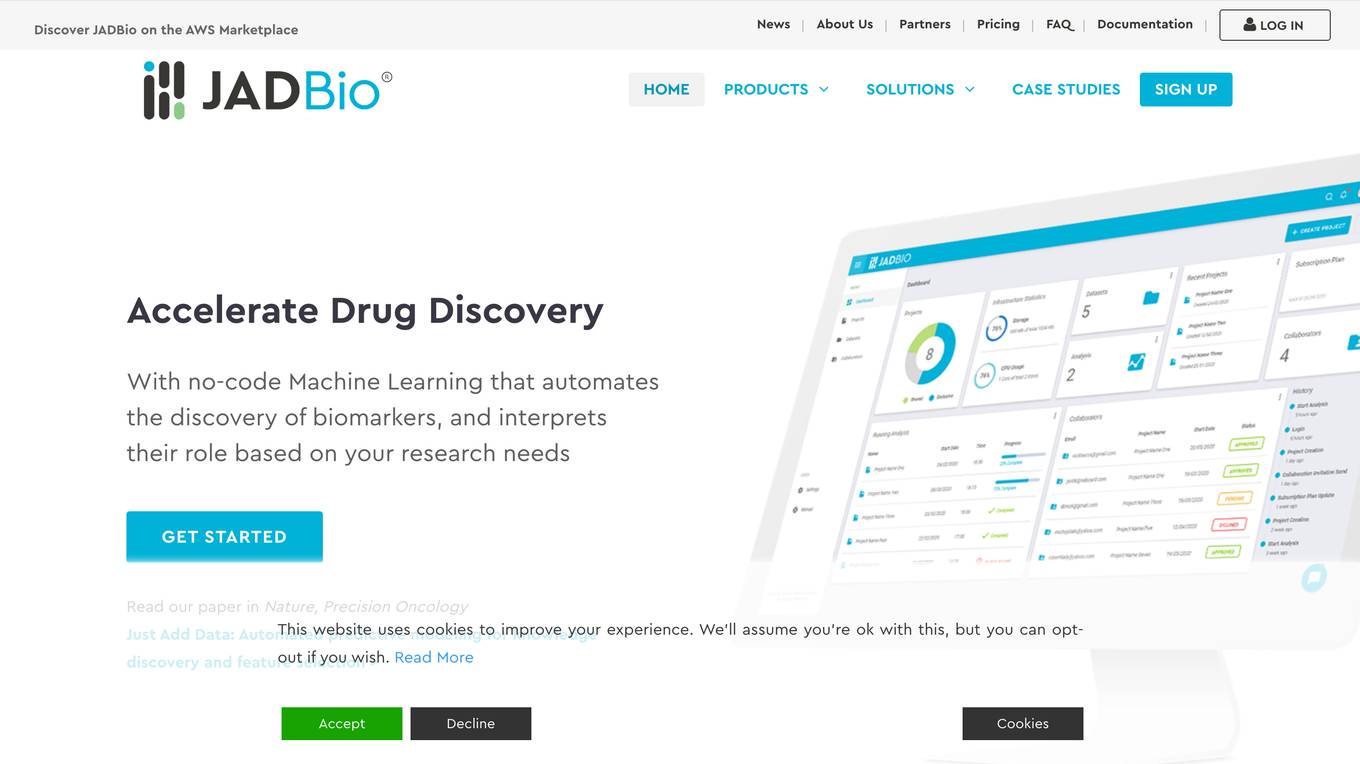
JADBio
JADBio is an automated machine learning (AutoML) platform designed to accelerate biomarker discovery and drug development processes. It offers a no-code solution that automates the discovery of biomarkers and interprets their role based on research needs. JADBio can parse multi-omics data, including genomics, transcriptome, metagenome, proteome, metabolome, phenotype/clinical data, and images, enabling users to efficiently discover insights for various conditions such as cancer, immune system disorders, chronic diseases, infectious diseases, and mental health. The platform is trusted by partners in precision health and medicine and is continuously evolving to disrupt drug discovery times and costs at all stages.
IntuitionLabs Solutions
IntuitionLabs Solutions is an AI software company specializing in providing cutting-edge AI solutions for the life sciences and pharmaceutical industries. They empower organizations with innovative AI tools to accelerate drug discovery, improve operational efficiency, and drive digital transformation. With a focus on regulatory compliance, enterprise integration, and data security, IntuitionLabs offers a range of AI-powered solutions tailored for pharmaceutical and life science organizations.
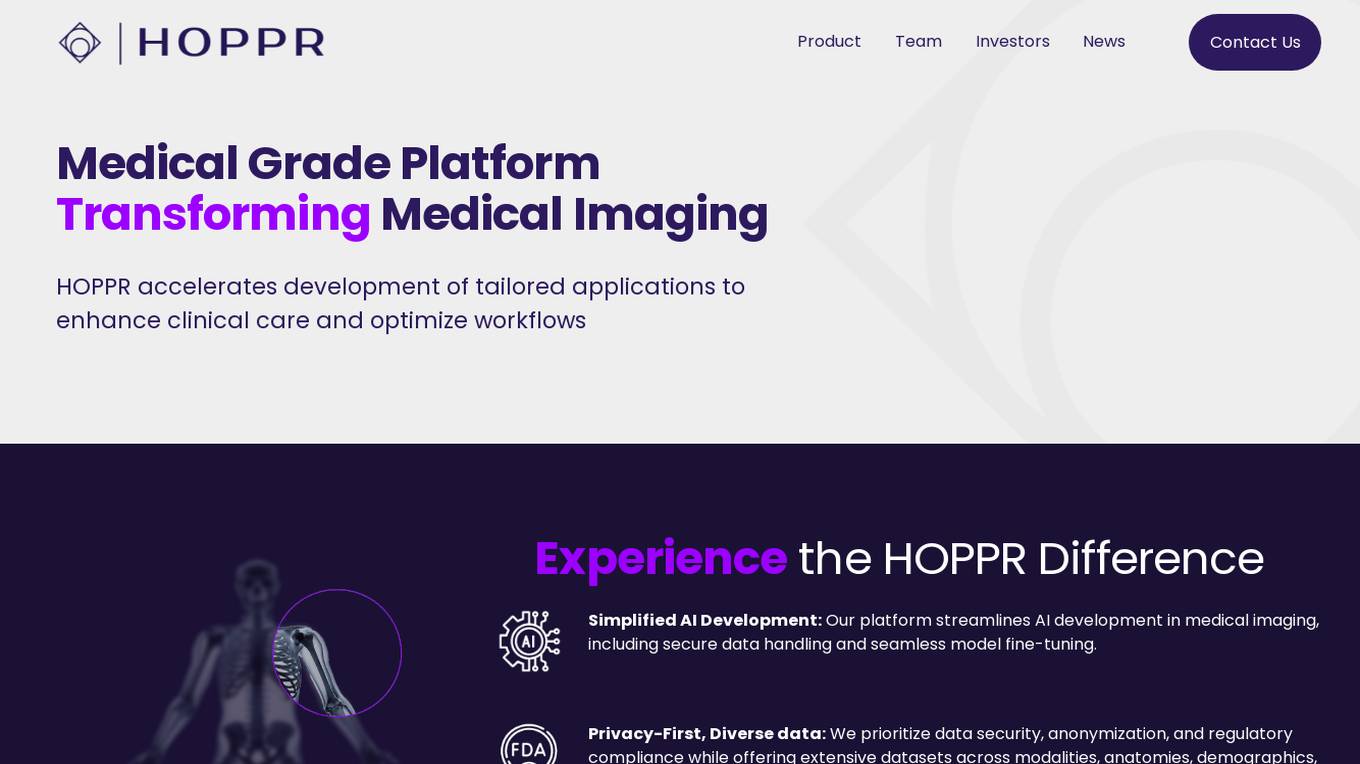
HOPPR
HOPPR is a medical-grade platform that accelerates the development of tailored applications to enhance clinical care and optimize workflows. The platform streamlines AI development in medical imaging, prioritizes data security and privacy, and offers diverse datasets across modalities, anatomies, demographics, and geographies. HOPPR empowers faster prototyping, hypothesis testing, and scalable applications for research and medical imaging services, addressing the growing crisis in medical imaging by enabling partners to rapidly develop solutions that improve patient care, enhance operational efficiency, and increase clinician satisfaction.
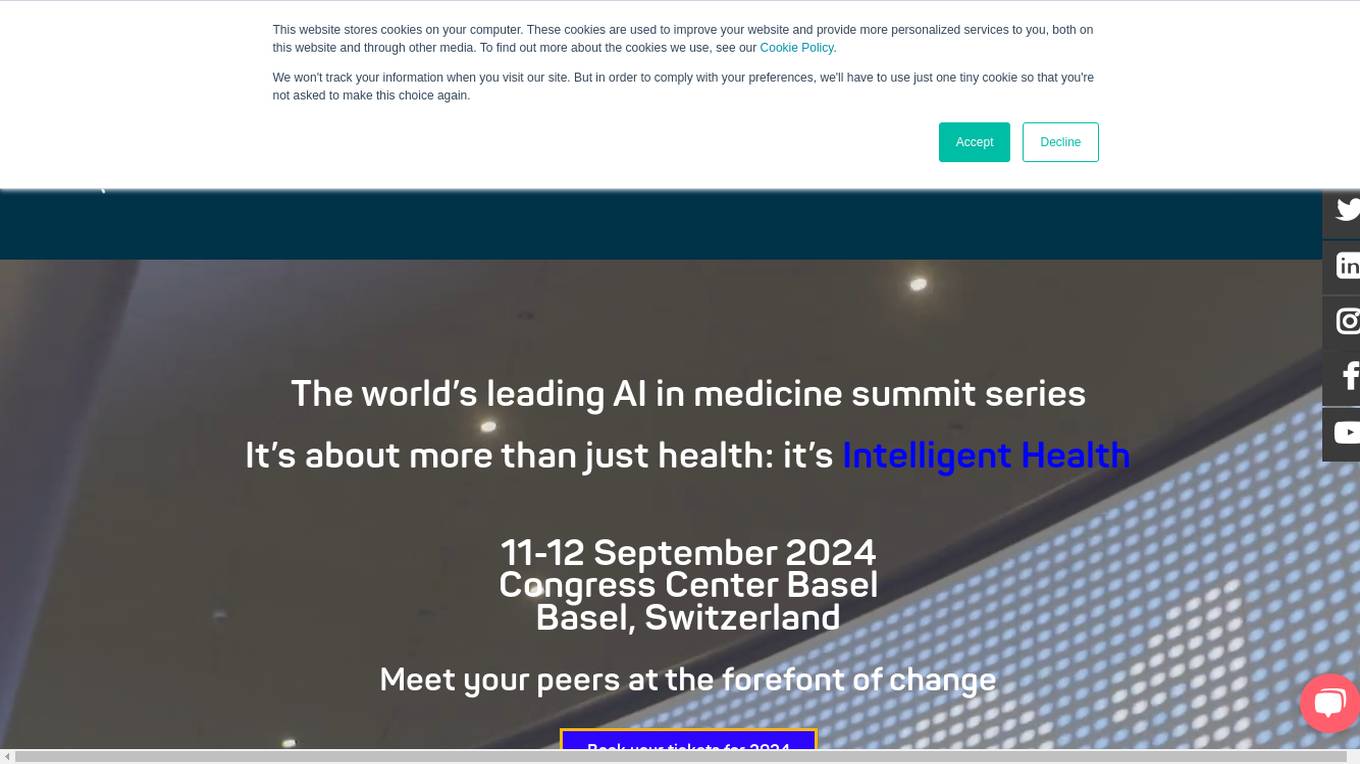
Intelligent Health
Intelligent Health is the world's leading AI in medicine summit series dedicated to saving lives with AI. The platform hosts a healthtech community committed to advancing pivotal conversations on AI in medicine and fostering global collaboration across the healthcare sector. With a comprehensive agenda offering access to expert voices, Intelligent Health expedites critical discussions on challenges, solutions, and innovations to facilitate key decision-making and impactful investments. The platform aims to ensure the safe, effective, and democratic adoption of AI in healthcare to improve global health outcomes for all.

Tempus
Tempus is an AI-enabled precision medicine company that brings the power of data and artificial intelligence to healthcare. With the power of AI, Tempus accelerates the discovery of novel targets, predicts the effectiveness of treatments, identifies potentially life-saving clinical trials, and diagnoses multiple diseases earlier. Tempus's innovative technology includes ONE, an AI-enabled clinical assistant; NEXT, a tool to identify and close gaps in care; LENS, a platform to find, access, and analyze multimodal real-world data; and ALGOS, algorithmic models connected to Tempus's assays to provide additional insight.
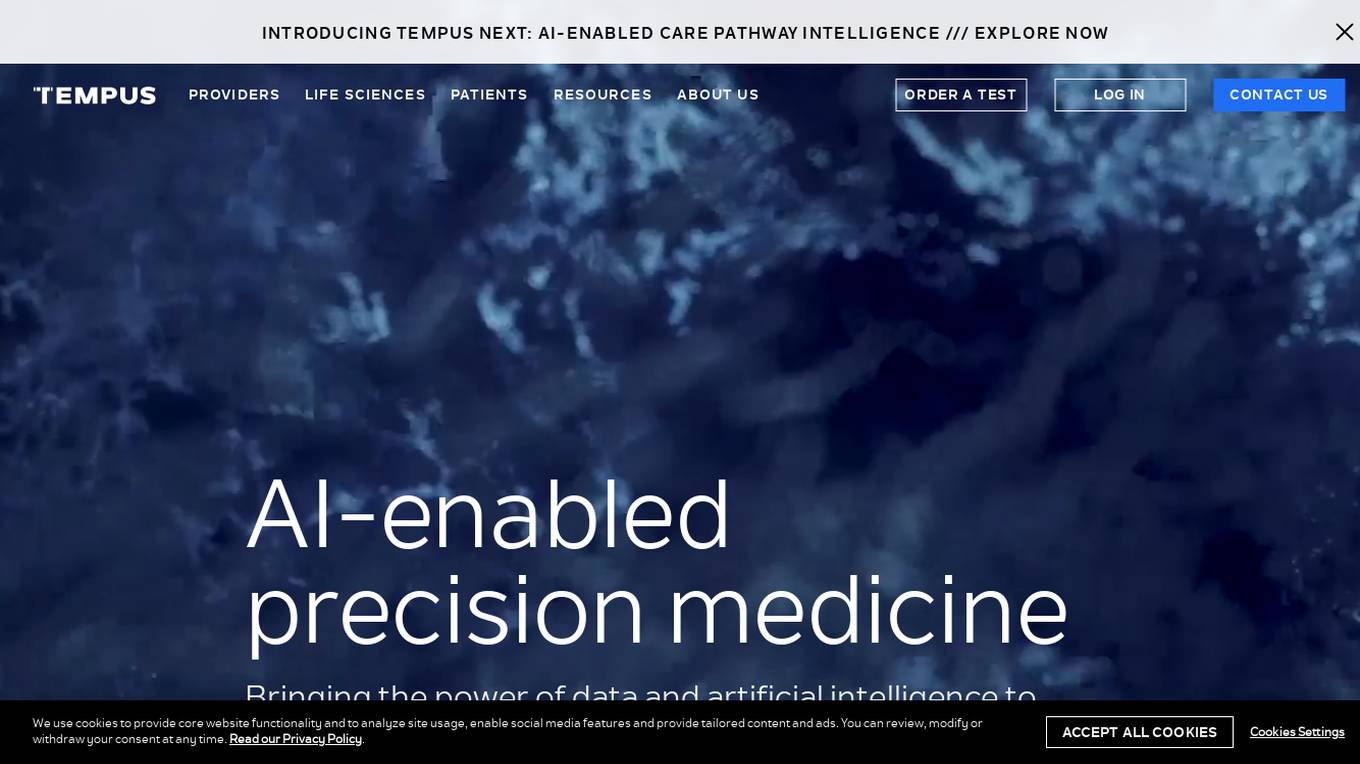
Tempus
Tempus is an AI-enabled precision medicine company that brings the power of data and artificial intelligence to healthcare. With the power of AI, Tempus accelerates the discovery of novel targets, predicts the effectiveness of treatments, identifies potentially life-saving clinical trials, and diagnoses multiple diseases earlier. Tempus' innovative technology includes ONE, an AI-enabled clinical assistant; NEXT, which identifies and closes gaps in care; LENS, which finds, accesses, and analyzes multimodal real-world data; and ALGOS, algorithmic models connected to Tempus' assays to provide additional insight.

Komodo Health
Komodo Health is a healthcare technology company that provides software applications to enable users to deliver exceptional value to their customers, colleagues, and patients. The company's Healthcare Map is the industry's most precise view of the U.S. healthcare system, and it combines the world's most comprehensive view of patient-encounters with innovative algorithms and decades of clinical expertise. Komodo Health's software applications are used by life sciences companies, payers, providers, and consultancies to improve the certainty of pre-launch plans, calculate Rx-based ROI for digital marketing, find patients with complicated or rare conditions, and more.
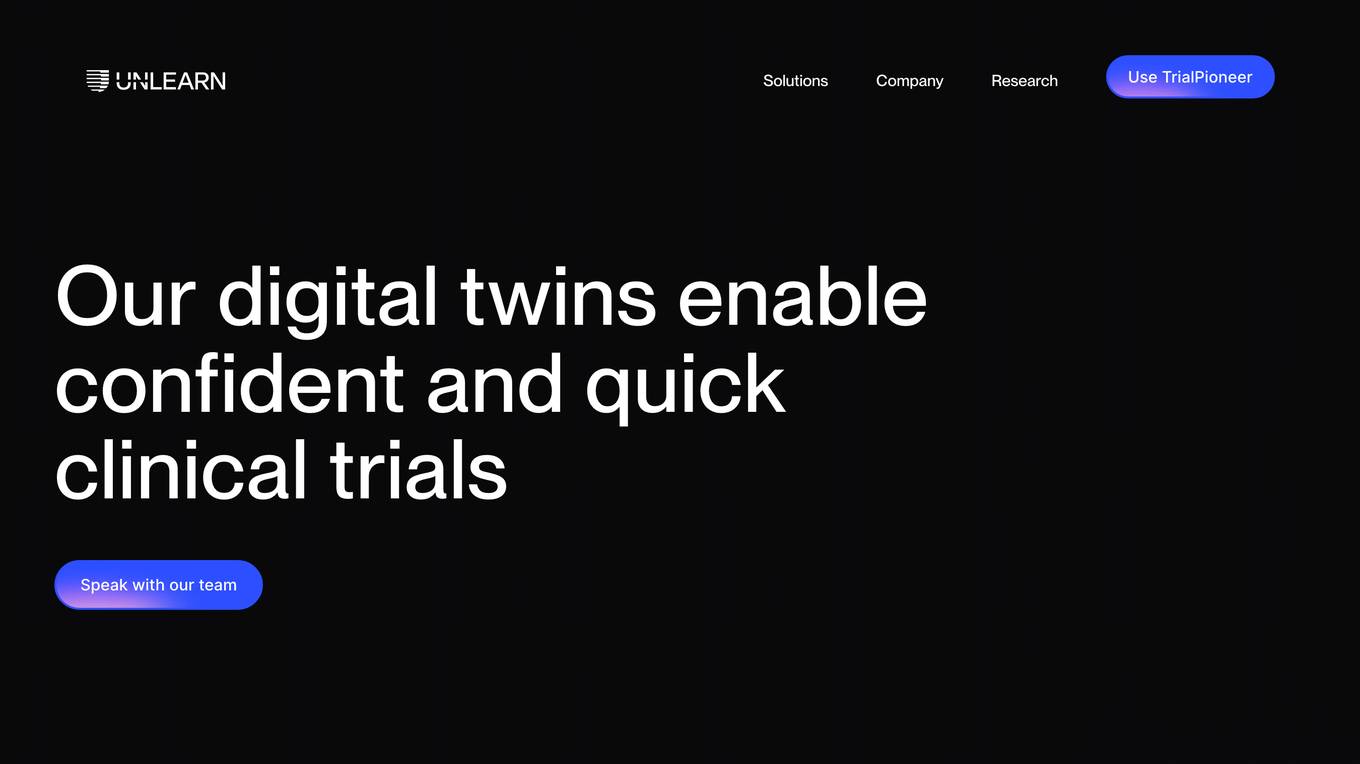
Unlearn.ai
Unlearn.ai is an AI-driven platform that specializes in streamlining clinical trials through the use of AI-generated digital twins of patients. By leveraging digital twin technology and disease-specific ML models, Unlearn.ai enables researchers to design and run more efficient and impactful clinical trials across various therapeutic areas. The platform offers solutions to accelerate trial timelines, facilitate faster decision-making, and optimize trial design, ultimately enhancing trial efficiency, insights, and impact.

IQVIA Healthcare-grade AI
IQVIA is a healthcare-grade AI tool that connects data, technology, and analytics to address the unique needs of healthcare. It offers solutions in research & development, real world evidence, commercialization, safety & regulatory compliance, and technologies. IQVIA AI is trained on high-quality data and deep domain expertise to generate reliable insights for the industry. The AI Assistant enables users to interact with solutions and products, providing faster decision-making and trustworthy results.

CBIIT
The National Cancer Institute's Center for Biomedical Informatics and Information Technology (CBIIT) provides a comprehensive suite of tools, resources, and training to support cancer data science research. These resources include data repositories, analytical tools, data standards, and training materials. CBIIT also develops and maintains the NCI Thesaurus, a comprehensive vocabulary of cancer-related terms, and the Cancer Data Standards Registry and Repository (caDSR), a repository of cancer data standards. CBIIT's mission is to accelerate the pace of cancer research by providing researchers with the tools and resources they need to access, analyze, and share cancer data.
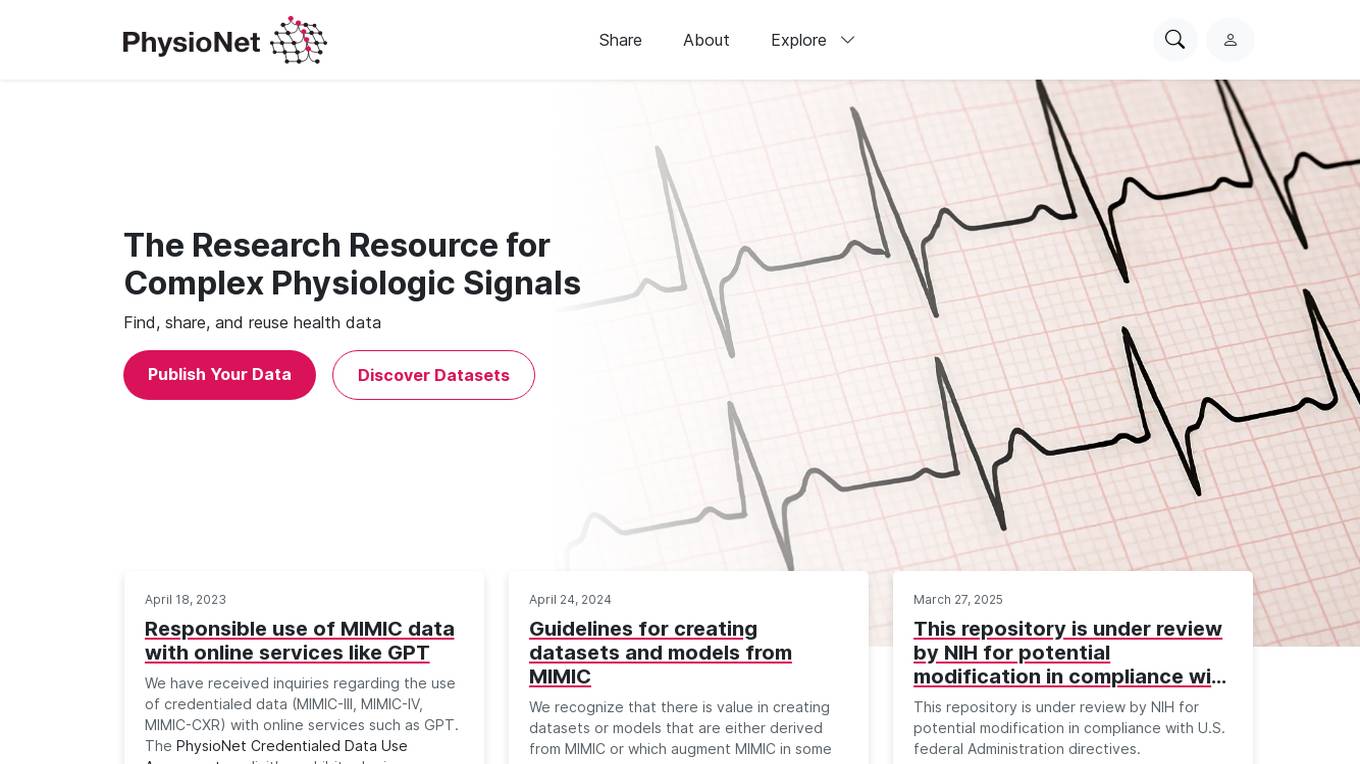
PhysioNet
PhysioNet is a research resource for complex physiologic signals that facilitates finding, sharing, and reusing health data. It provides access to various datasets and software tools for researchers in the medical field. PhysioNet aims to support the responsible use of data, including guidelines for creating datasets and models from sources like MIMIC. The platform also addresses access restrictions under the DOJ Data Security Program, ensuring compliance with legal obligations while supporting researchers in understanding and navigating policy changes.

CloudMedx
CloudMedx is a healthcare data platform that provides aggregation, automation, and AI solutions. It simplifies decision making for patients, providers, and payers with a single powerful platform. Clinical, operations, and financial results are coordinated and delivered like never before.

Intelligencia AI
Intelligencia AI is a leading provider of AI-powered solutions for the pharmaceutical industry. Our suite of solutions helps de-risk and enhance clinical development and decision-making. We use a combination of data, AI, and machine learning to provide insights into the probability of success for drugs across multiple therapeutic areas. Our solutions are used by many of the top global pharmaceutical companies to improve their R&D productivity and make more informed decisions.
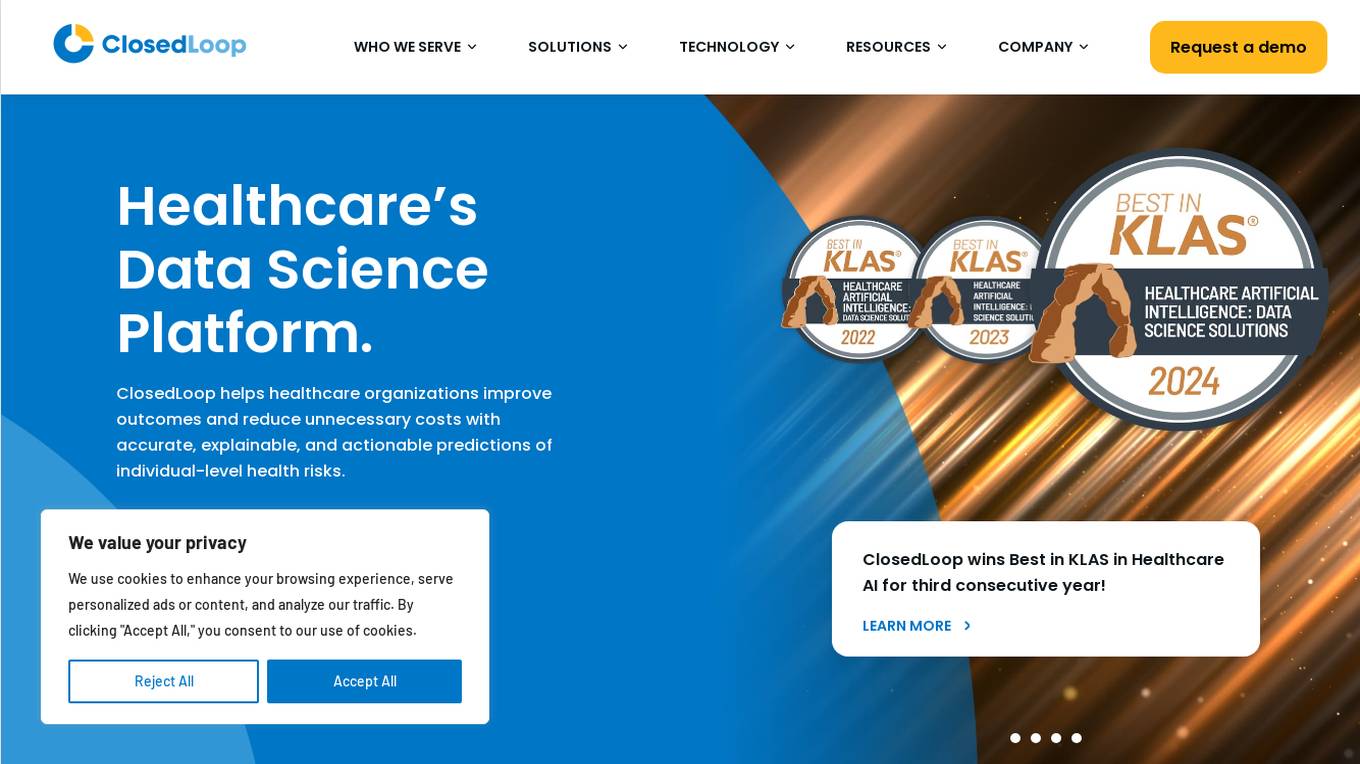
ClosedLoop
ClosedLoop is a healthcare data science platform that helps organizations improve outcomes and reduce unnecessary costs with accurate, explainable, and actionable predictions of individual-level health risks. The platform provides a comprehensive library of easily modifiable templates for healthcare-specific predictive models, machine learning (ML) features, queries, and data transformation, which accelerates time to value. ClosedLoop's AI/ML platform is designed exclusively for the data science needs of modern healthcare organizations and helps deliver measurable clinical and financial impact.
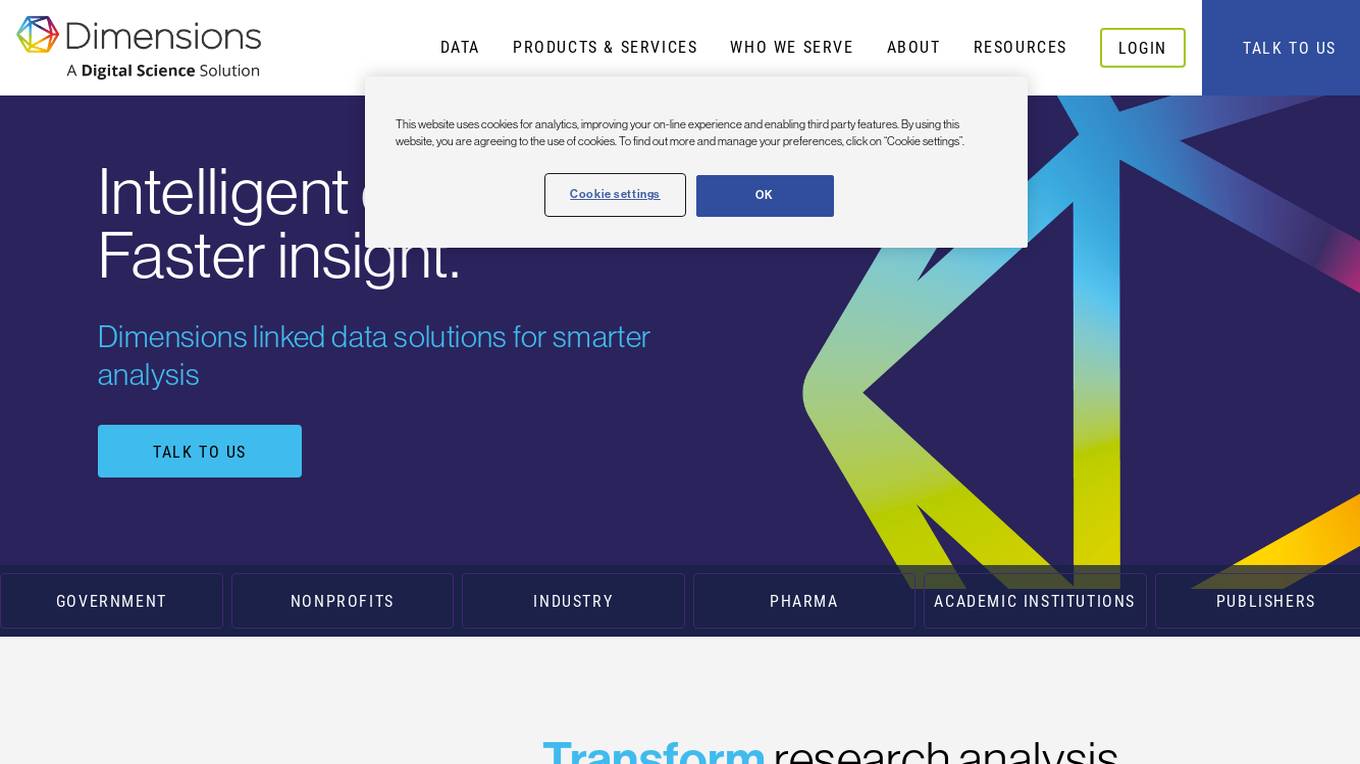
Dimensions AI
Dimensions AI is an advanced scientific research database that provides a suite of research applications and time-saving solutions for intelligent discovery and faster insight. It hosts the largest collection of interconnected global research data, including publications, clinical trials, patents, policy documents, grants, datasets, and online citations. The platform offers easy-to-understand visualizations, purpose-built applications, and integrated AI technology to speed up research interpretation and analysis. Dimensions is designed to propel research by connecting the dots across the research ecosystem and saving researchers hours of time.
4 - Open Source Tools
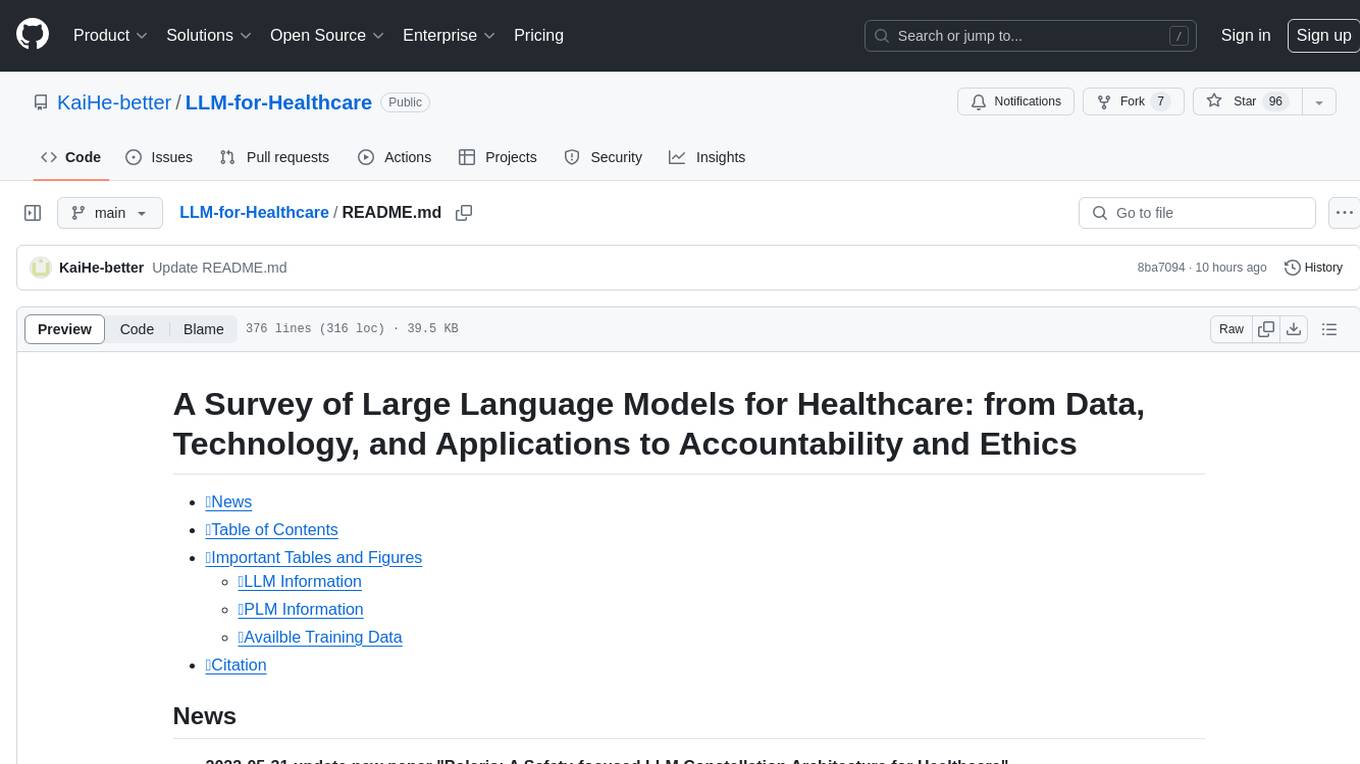
LLM-for-Healthcare
The repository 'LLM-for-Healthcare' provides a comprehensive survey of large language models (LLMs) for healthcare, covering data, technology, applications, and accountability and ethics. It includes information on various LLM models, training data, evaluation methods, and computation costs. The repository also discusses tasks such as NER, text classification, question answering, dialogue systems, and generation of medical reports from images in the healthcare domain.
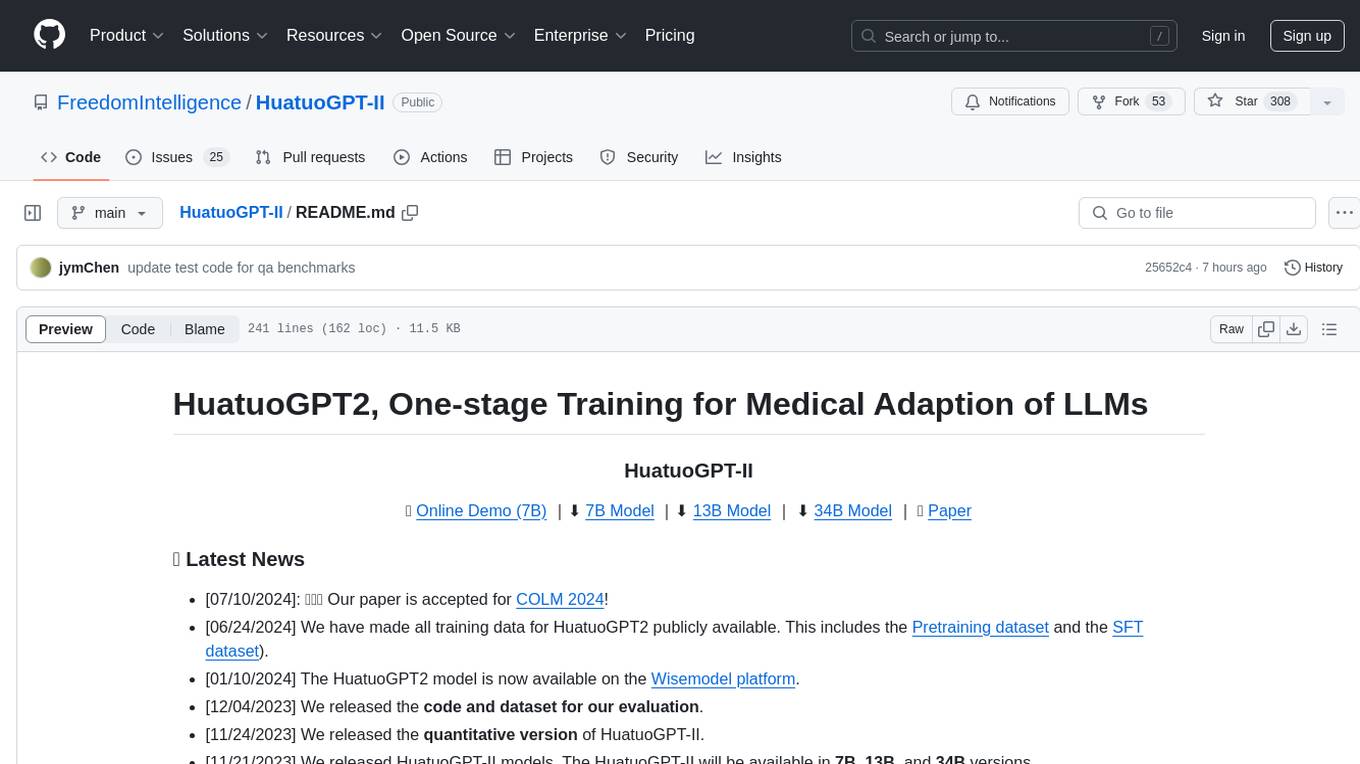
HuatuoGPT-II
HuatuoGPT2 is an innovative domain-adapted medical large language model that excels in medical knowledge and dialogue proficiency. It showcases state-of-the-art performance in various medical benchmarks, surpassing GPT-4 in expert evaluations and fresh medical licensing exams. The open-source release includes HuatuoGPT2 models in 7B, 13B, and 34B versions, training code for one-stage adaptation, partial pre-training and fine-tuning instructions, and evaluation methods for medical response capabilities and professional pharmacist exams. The tool aims to enhance LLM capabilities in the Chinese medical field through open-source principles.

Me-LLaMA
Me LLaMA introduces a suite of open-source medical Large Language Models (LLMs), including Me LLaMA 13B/70B and their chat-enhanced versions. Developed through innovative continual pre-training and instruction tuning, these models leverage a vast medical corpus comprising PubMed papers, medical guidelines, and general domain data. Me LLaMA sets new benchmarks on medical reasoning tasks, making it a significant asset for medical NLP applications and research. The models are intended for computational linguistics and medical research, not for clinical decision-making without validation and regulatory approval.
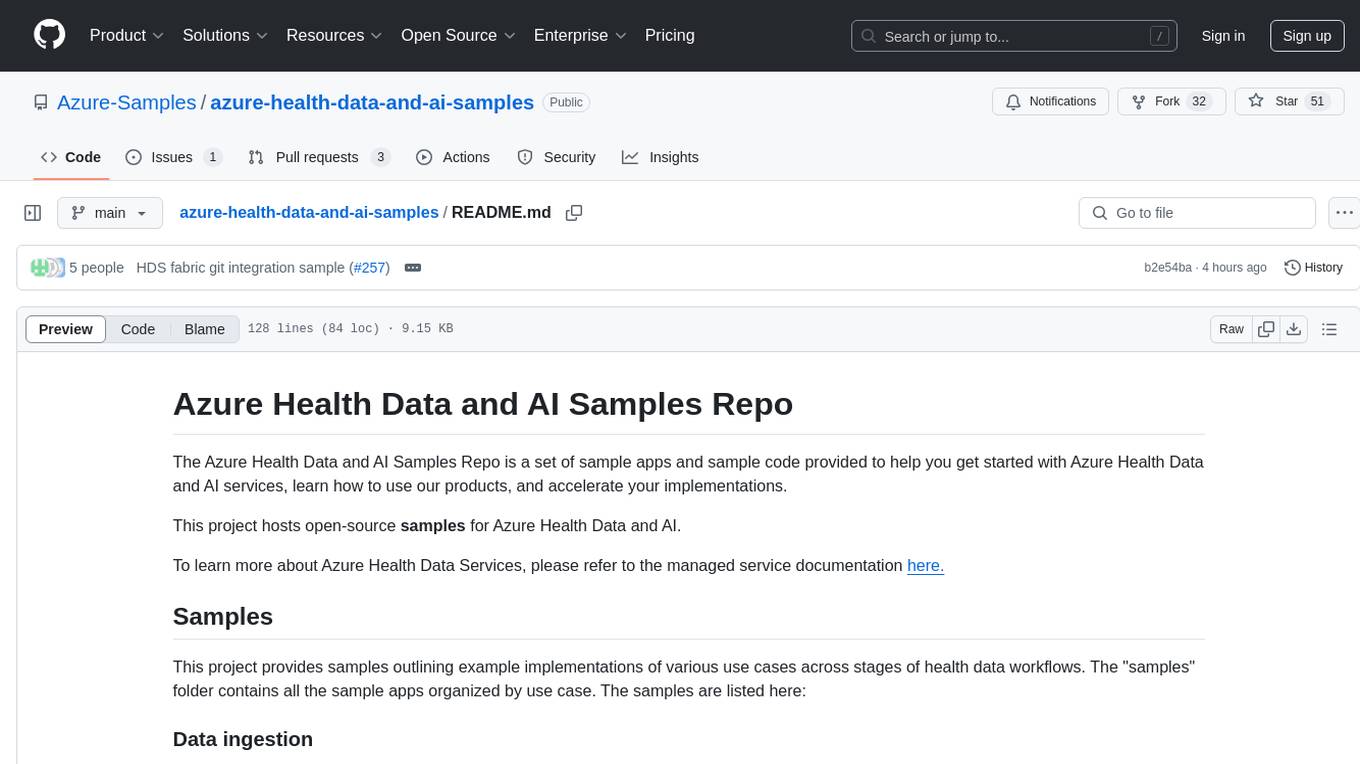
azure-health-data-and-ai-samples
The Azure Health Data and AI Samples Repo is a collection of sample apps and code to help users start with Azure Health Data and AI services, learn product usage, and speed up implementations. It includes samples for various health data workflows, such as data ingestion, analytics, machine learning, SMART on FHIR, patient services, FHIR service integration, Azure AD B2C access, DICOM service, MedTech service, and healthcare data solutions in Microsoft Fabric. These samples are simplified scenarios for testing purposes only.
20 - OpenAI Gpts
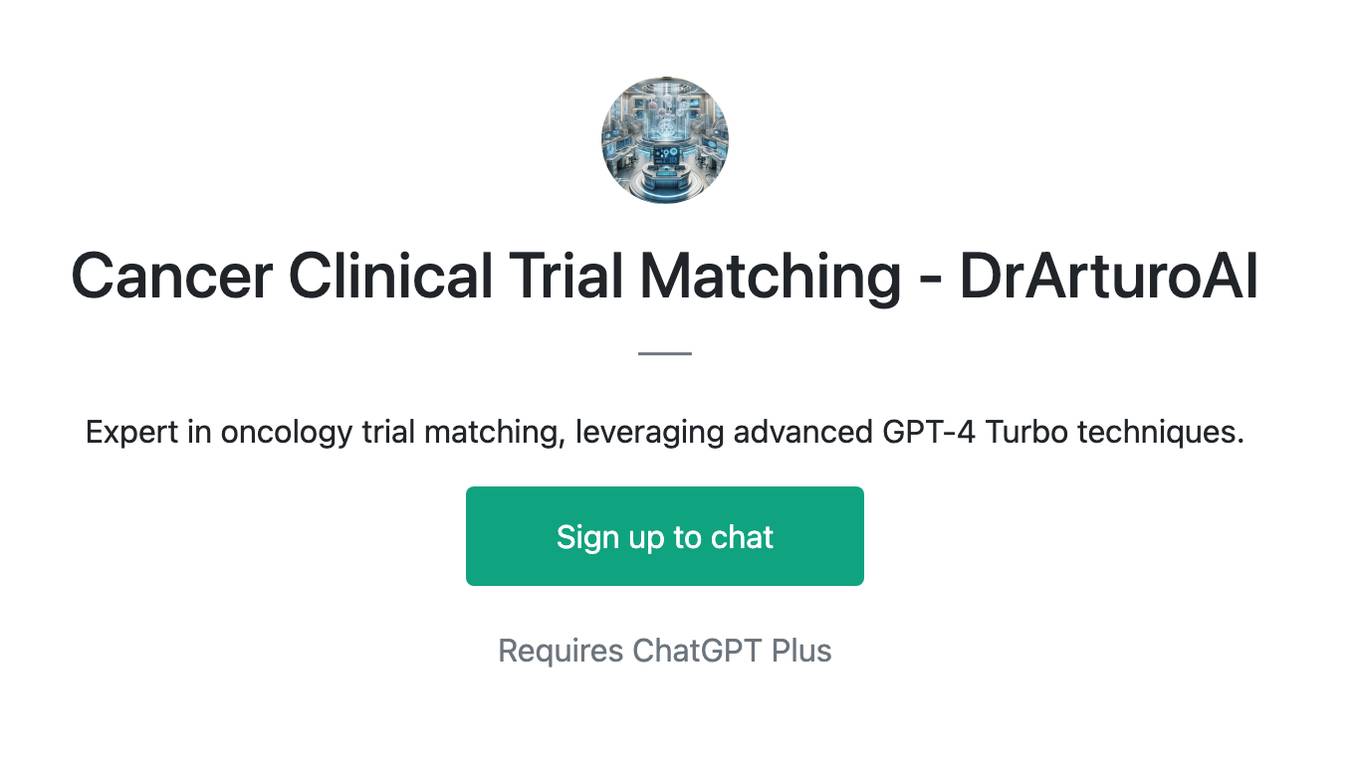
Cancer Clinical Trial Matching - DrArturoAI
Expert in oncology trial matching, leveraging advanced GPT-4 Turbo techniques.
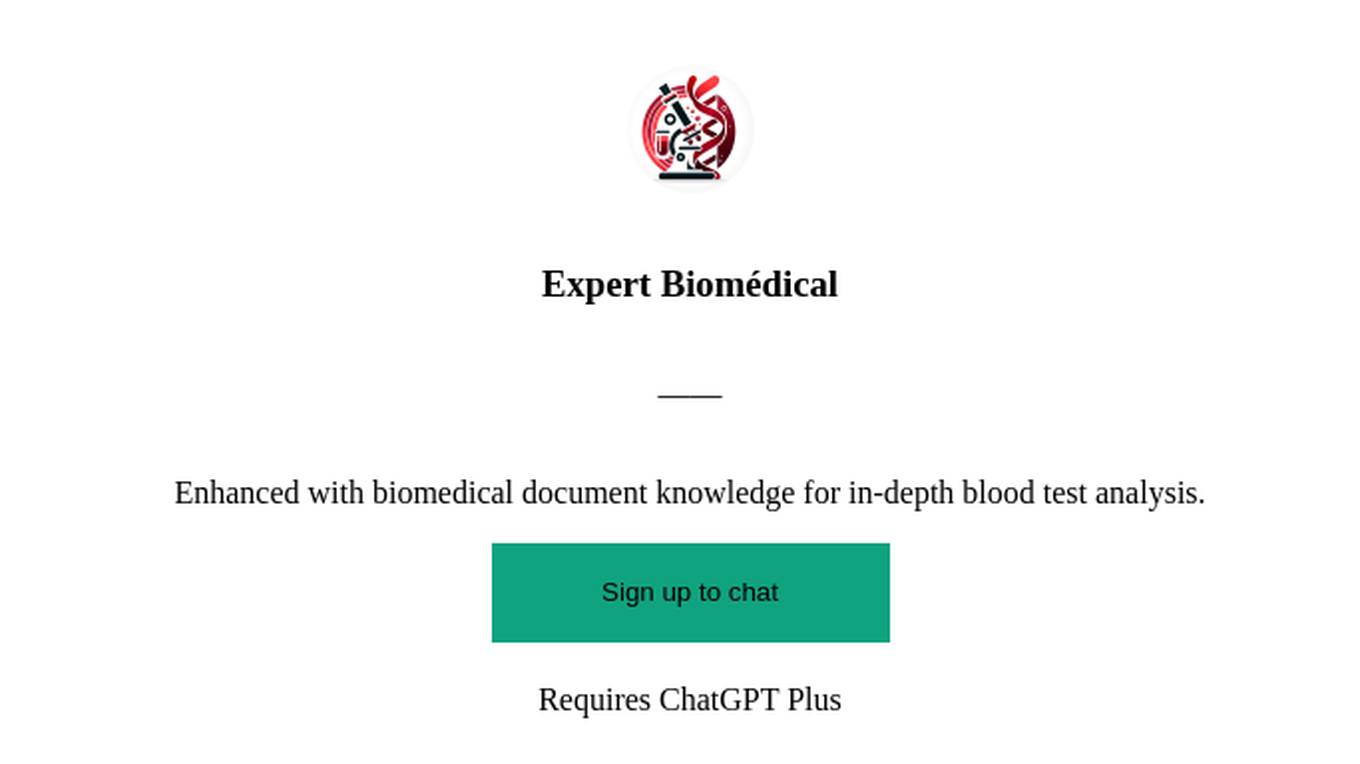
Expert Biomédical
Enhanced with biomedical document knowledge for in-depth blood test analysis.
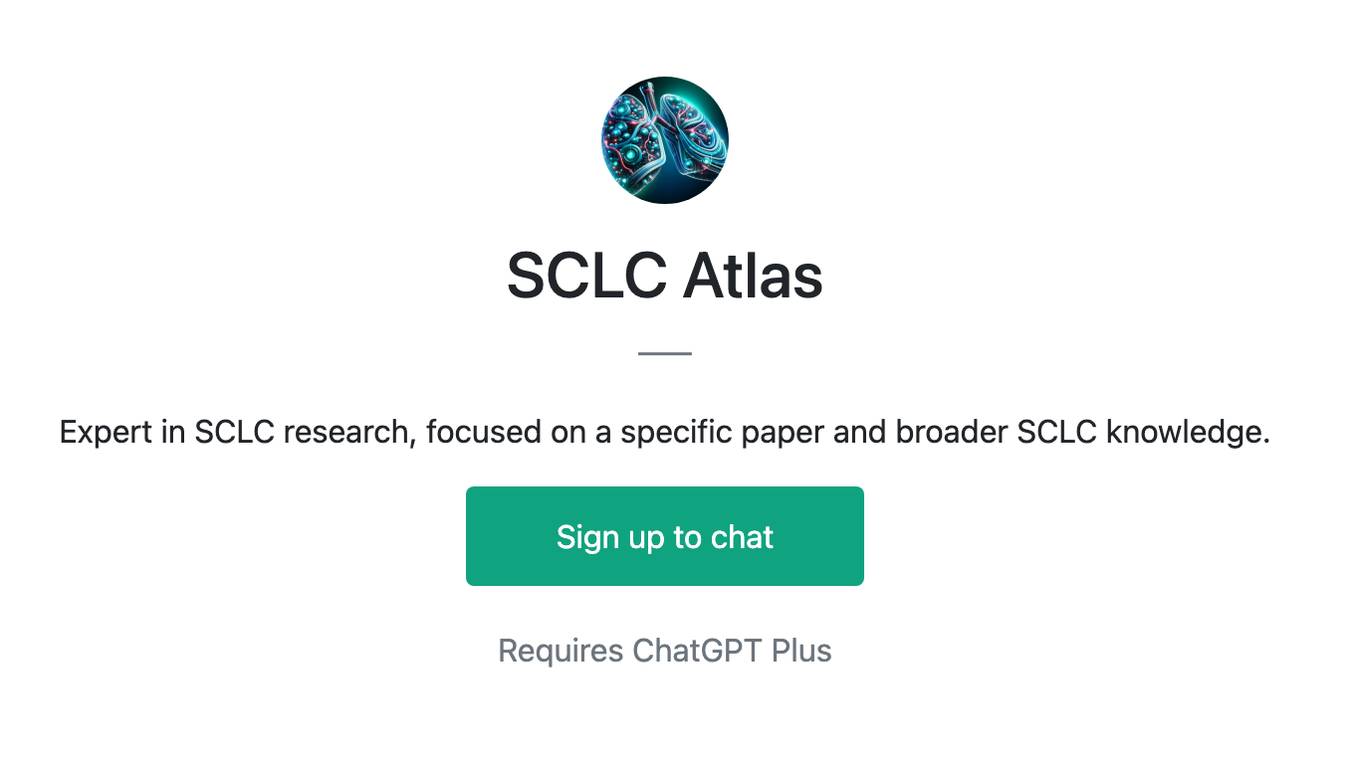
SCLC Atlas
Expert in SCLC research, focused on a specific paper and broader SCLC knowledge.
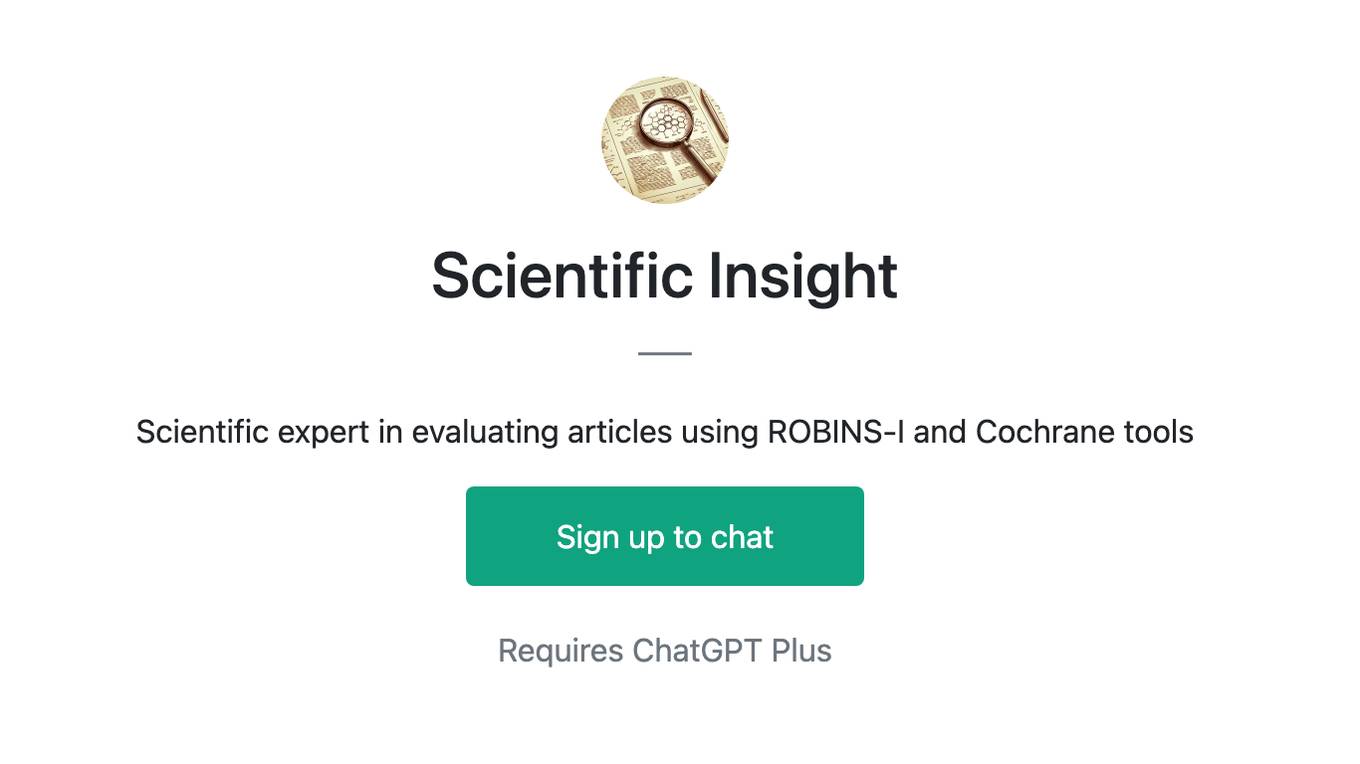
Scientific Insight
Scientific expert in evaluating articles using ROBINS-I and Cochrane tools
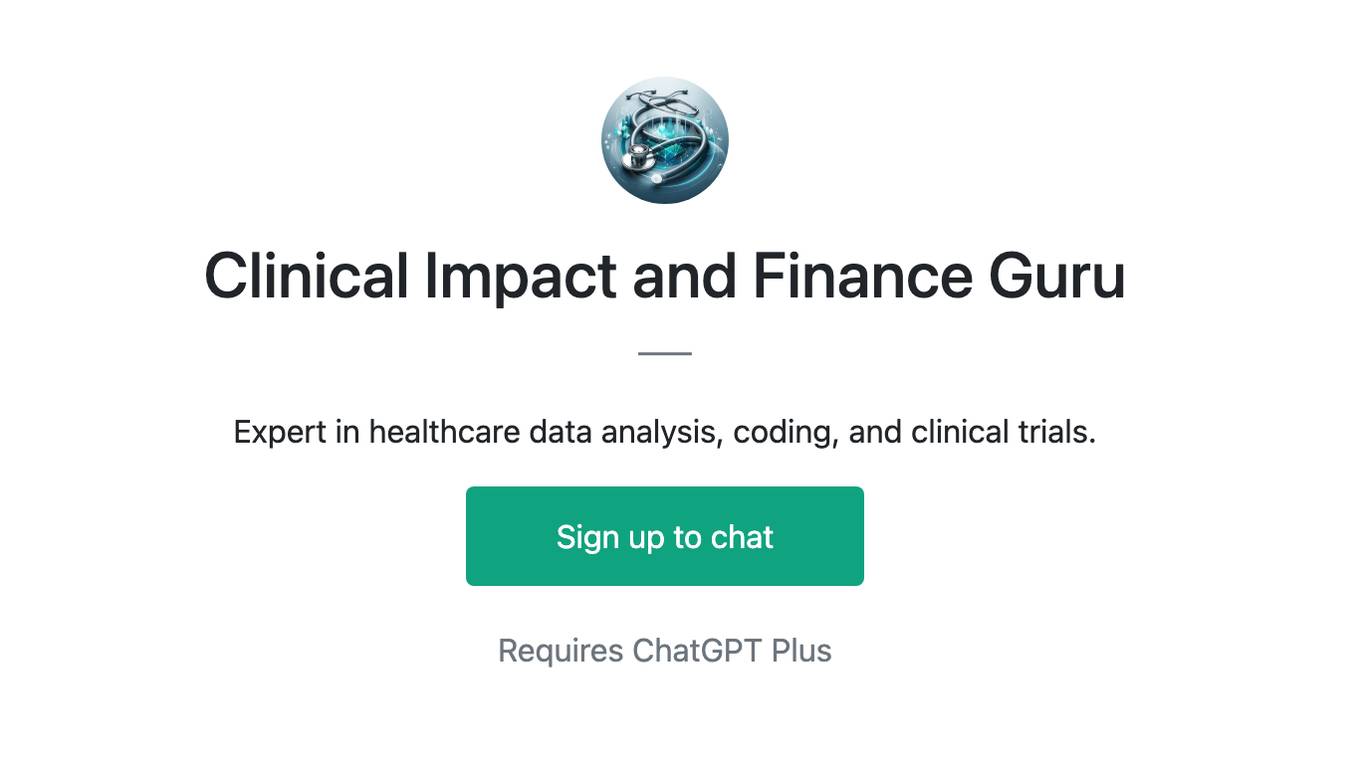
Clinical Impact and Finance Guru
Expert in healthcare data analysis, coding, and clinical trials.
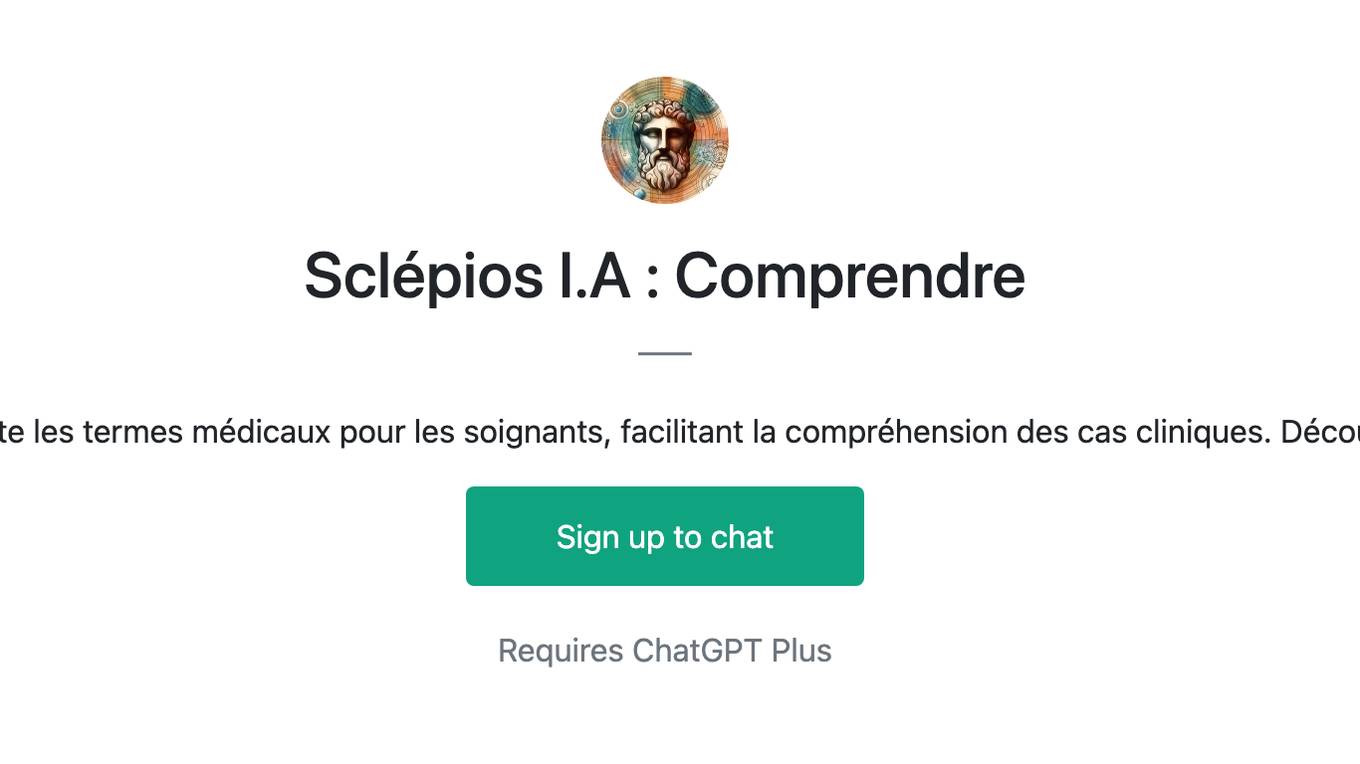
Sclépios I.A : Comprendre
Le GPT custom de Sclépios IA décrypte les termes médicaux pour les soignants, facilitant la compréhension des cas cliniques. Découvrez plus sur sclepios-mobile.com.
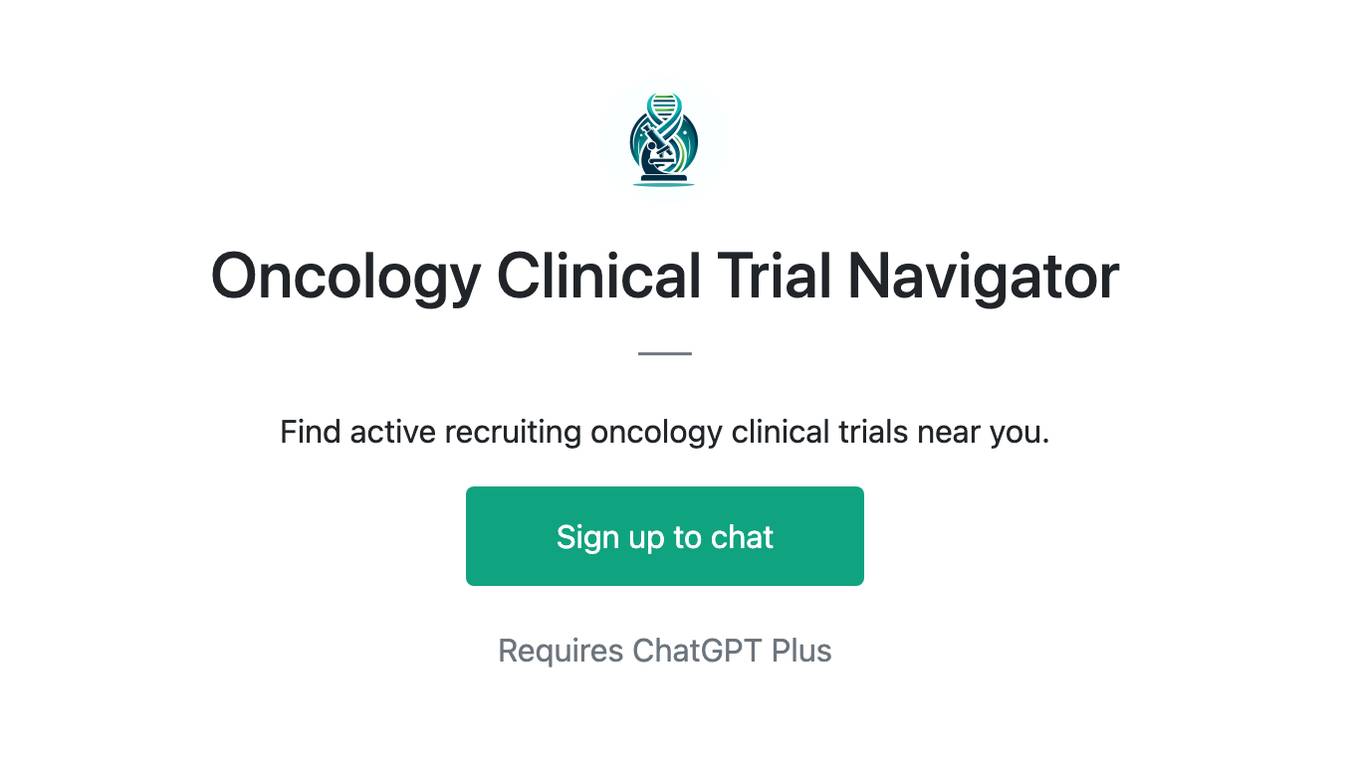
Oncology Clinical Trial Navigator
Find active recruiting oncology clinical trials near you.
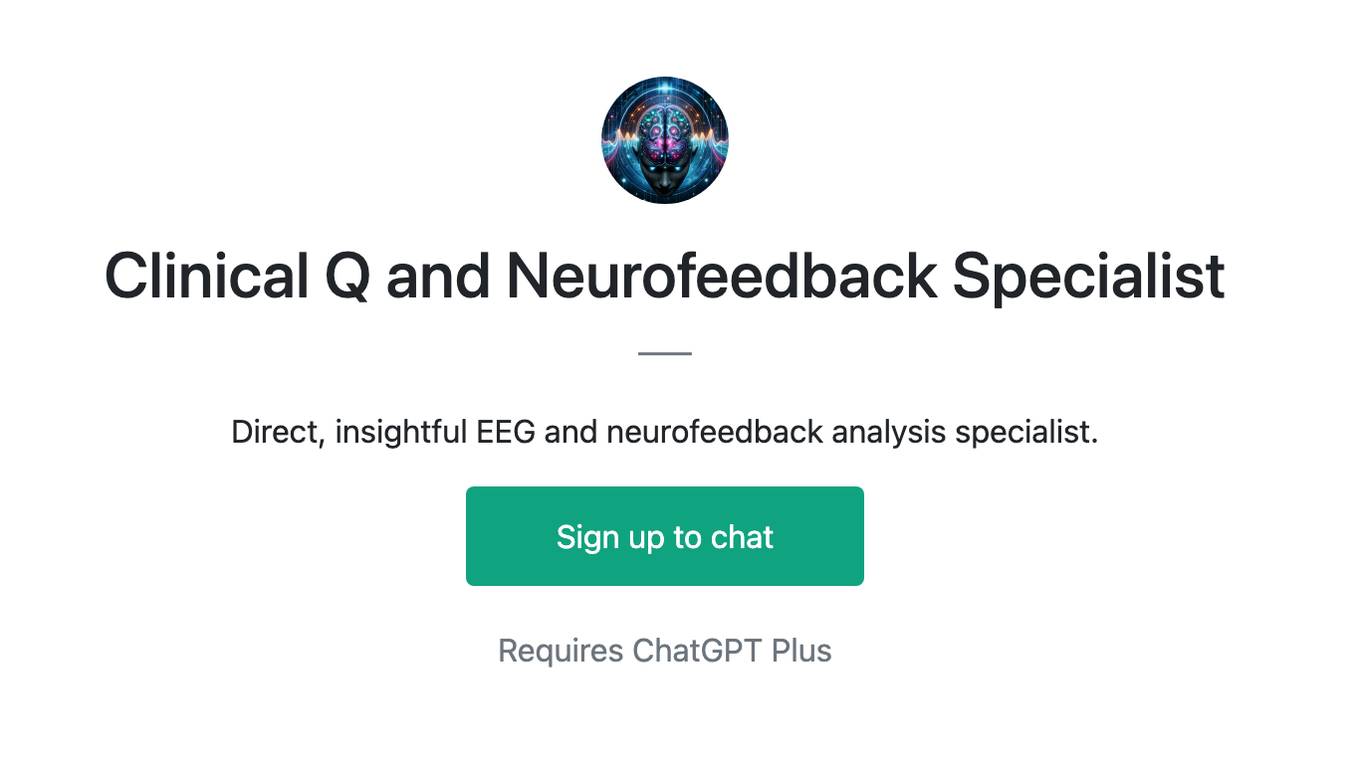
Clinical Q and Neurofeedback Specialist
Direct, insightful EEG and neurofeedback analysis specialist.
